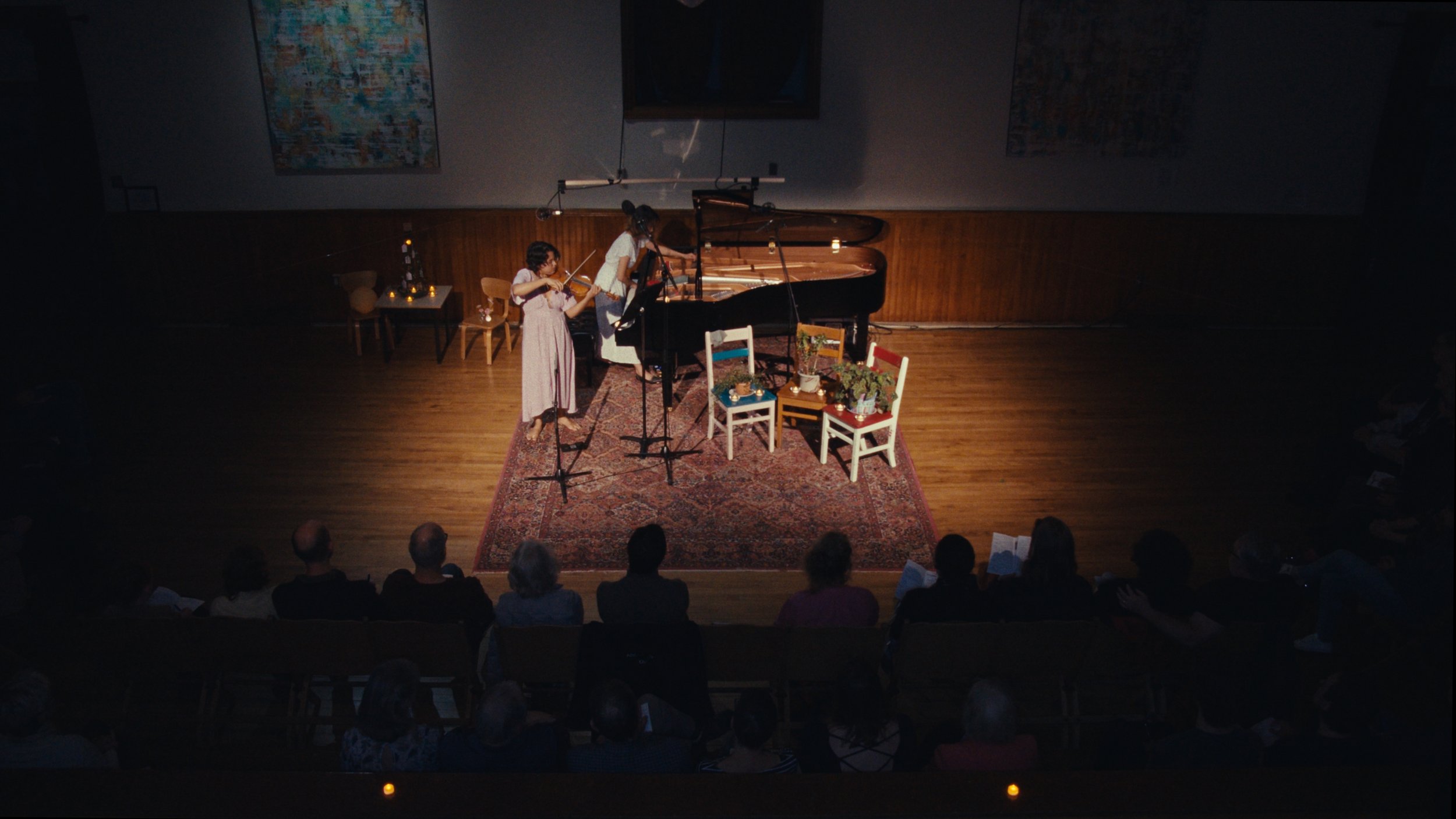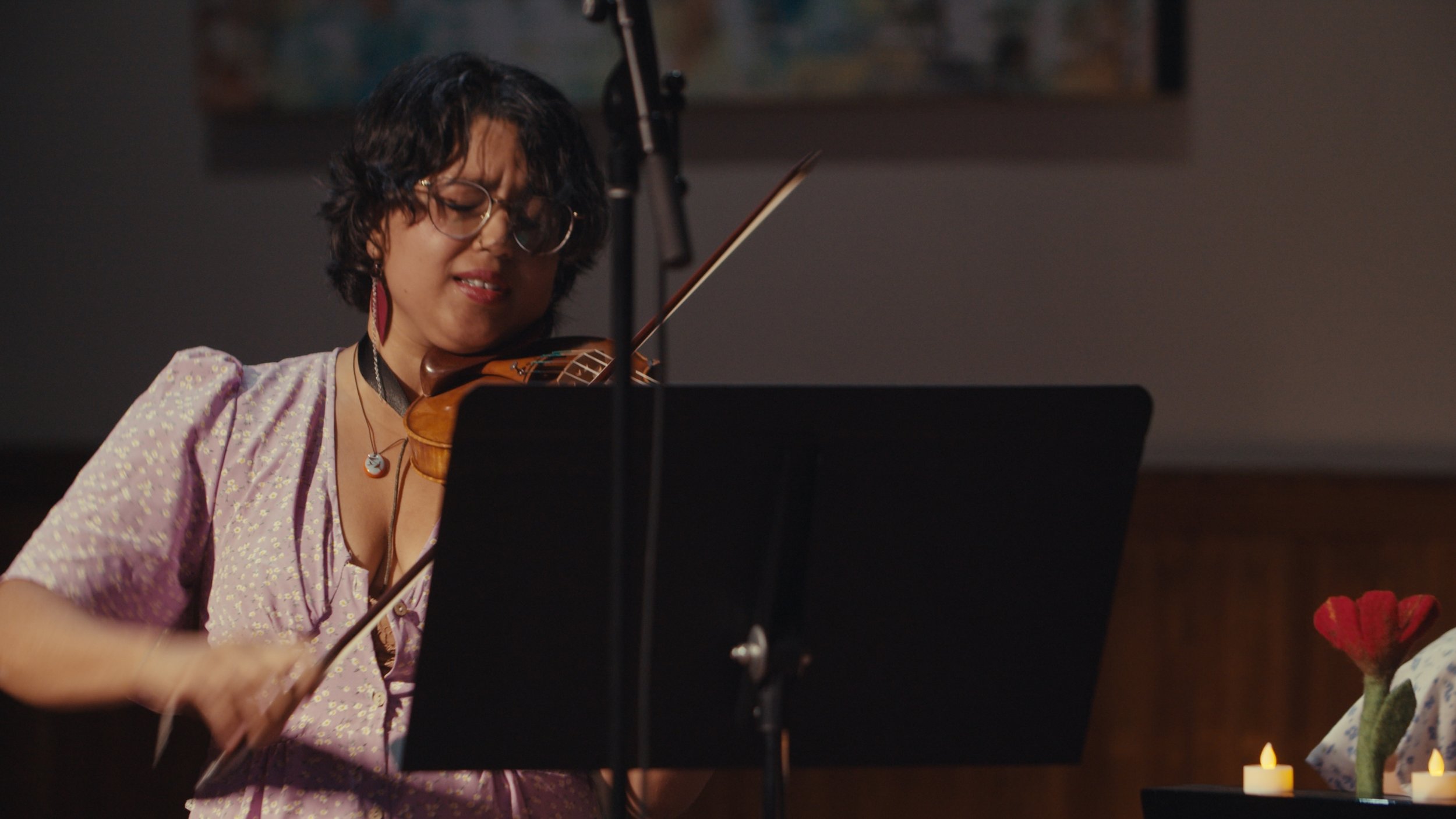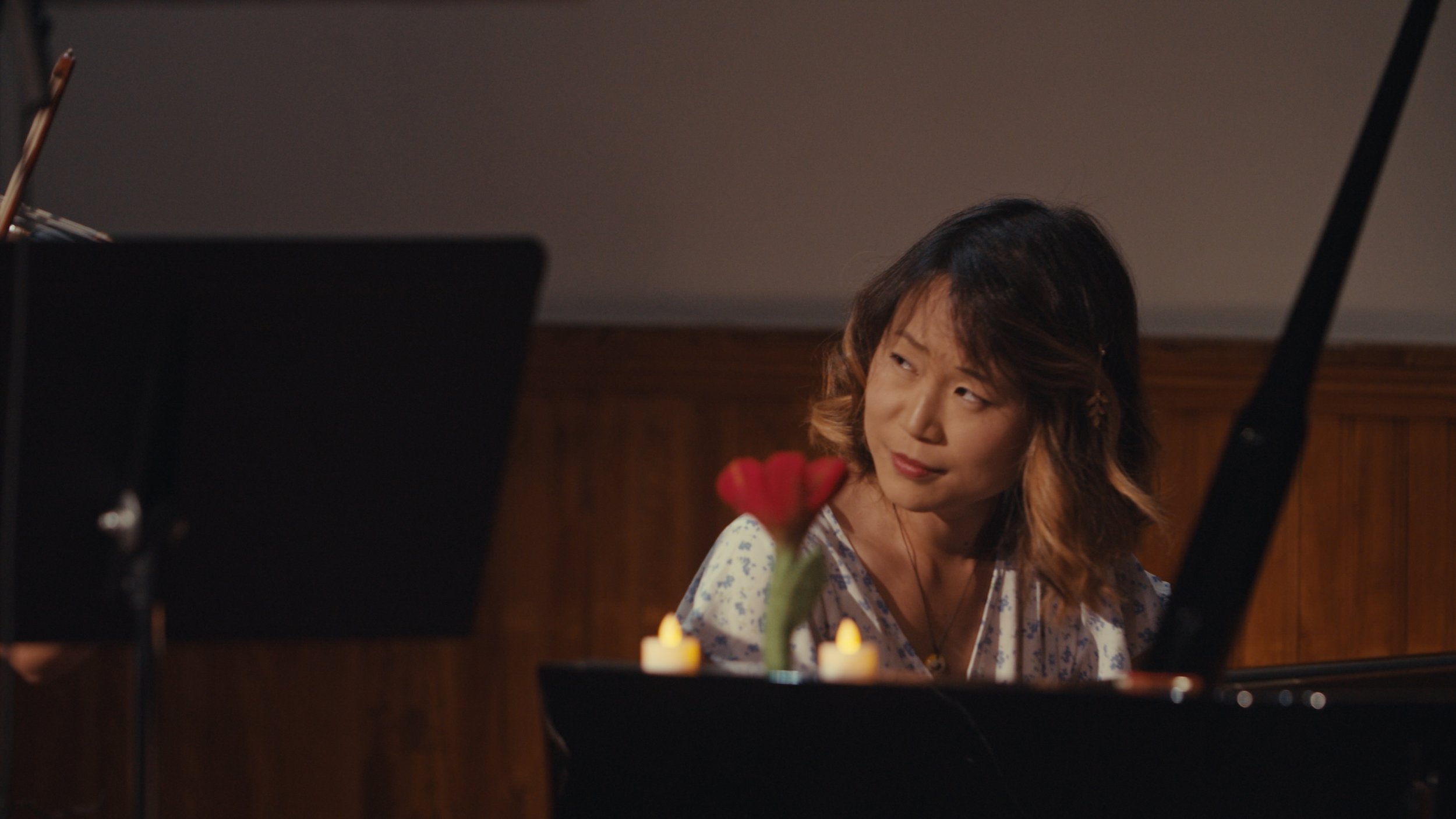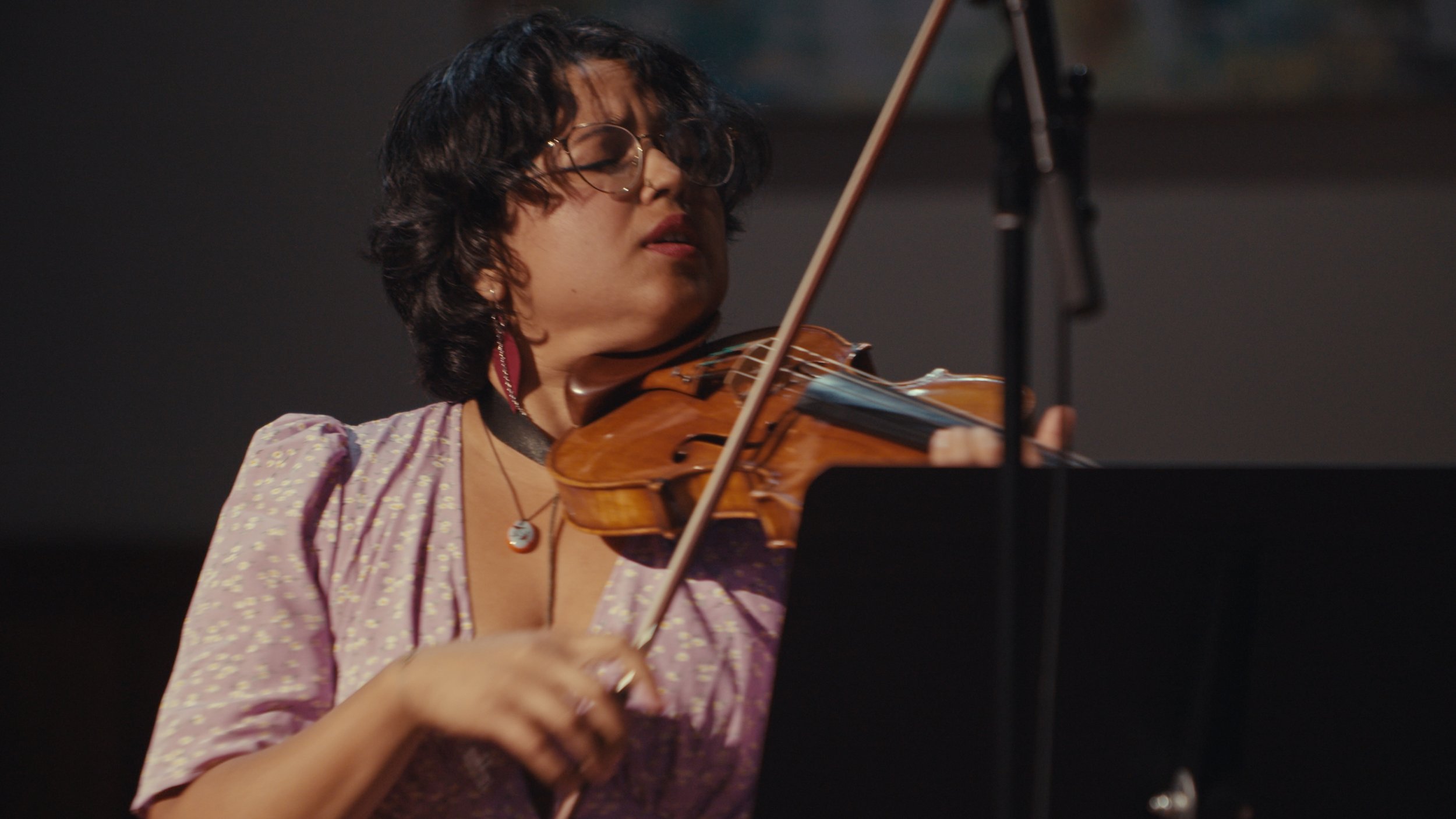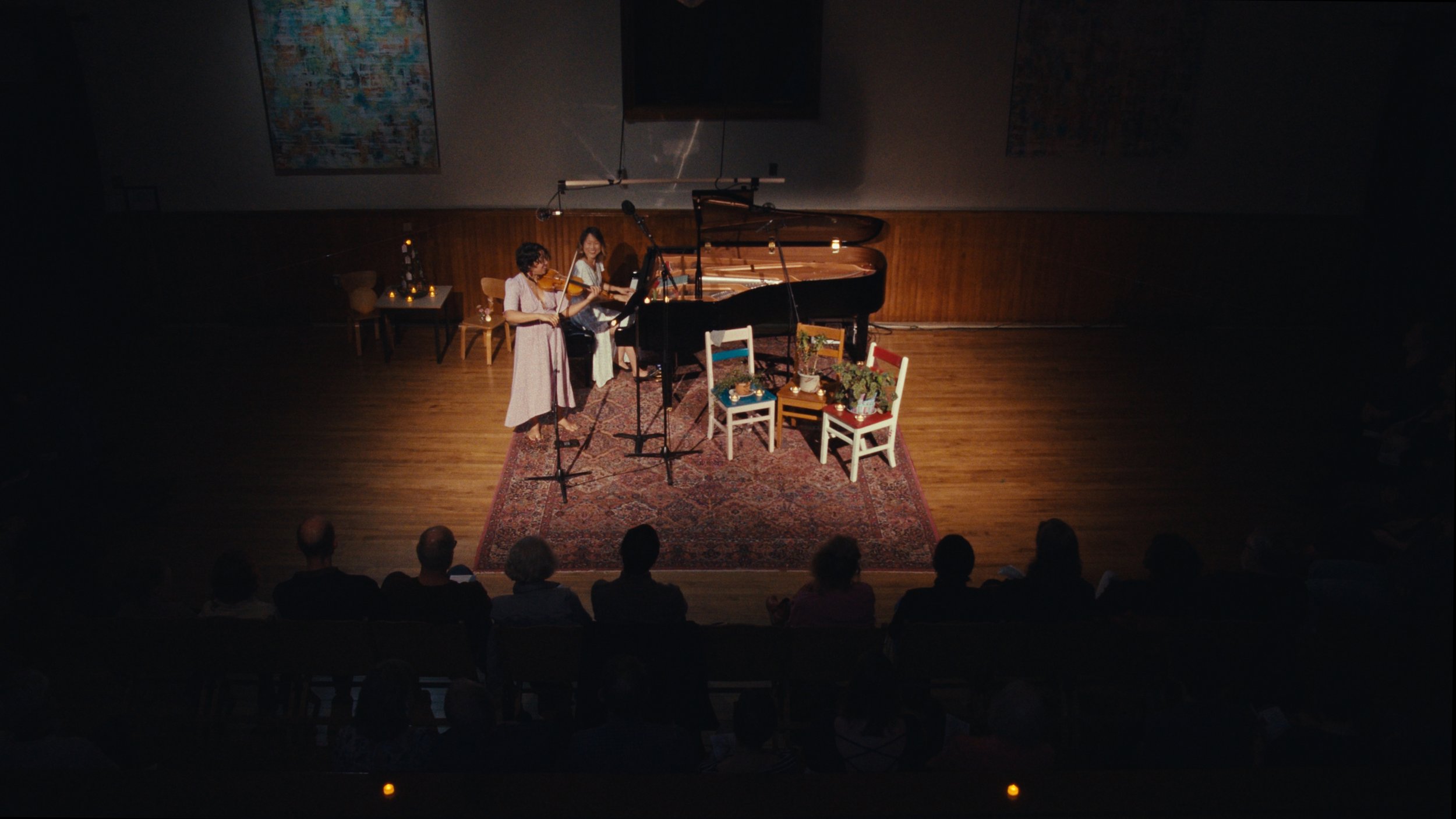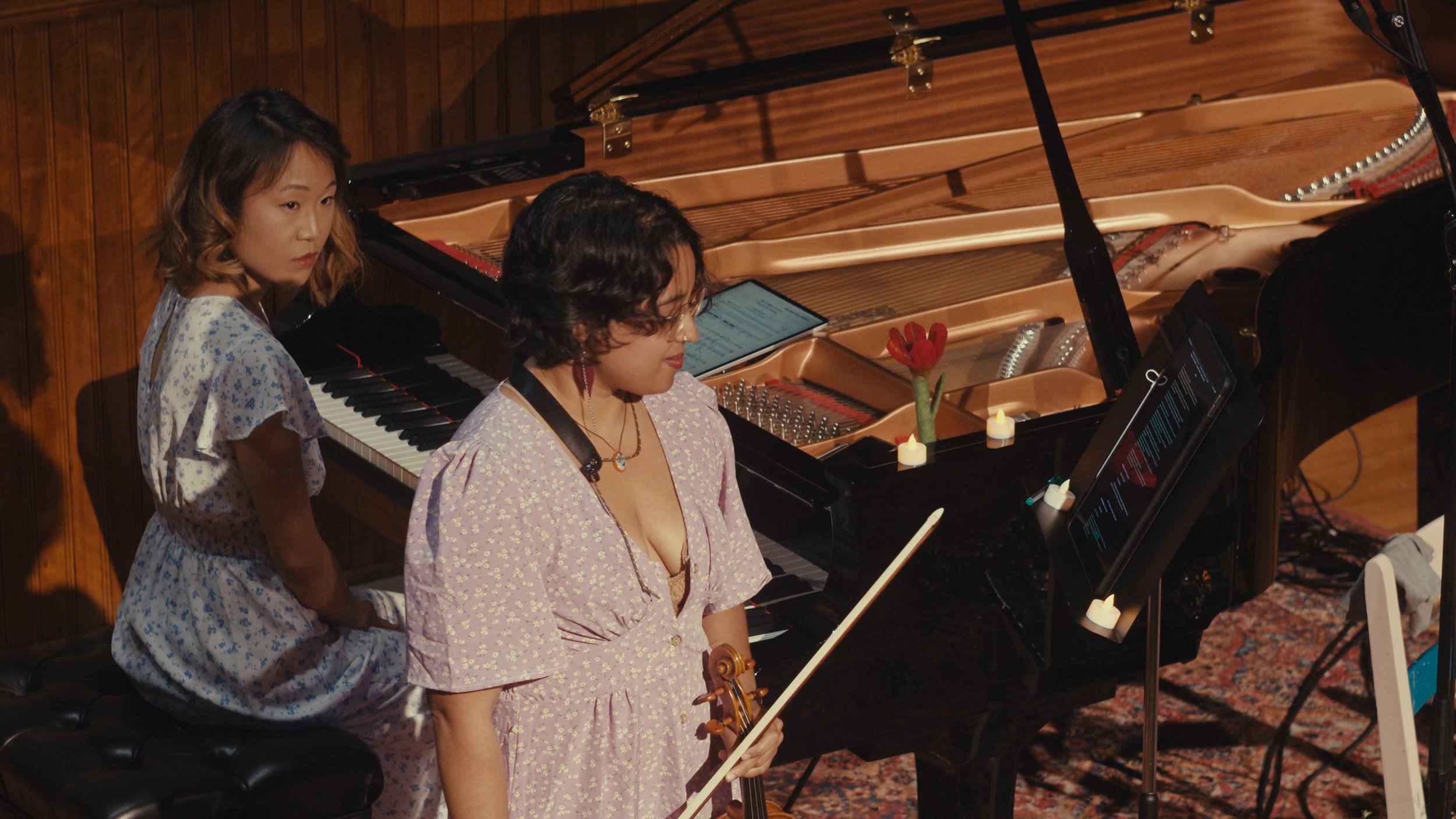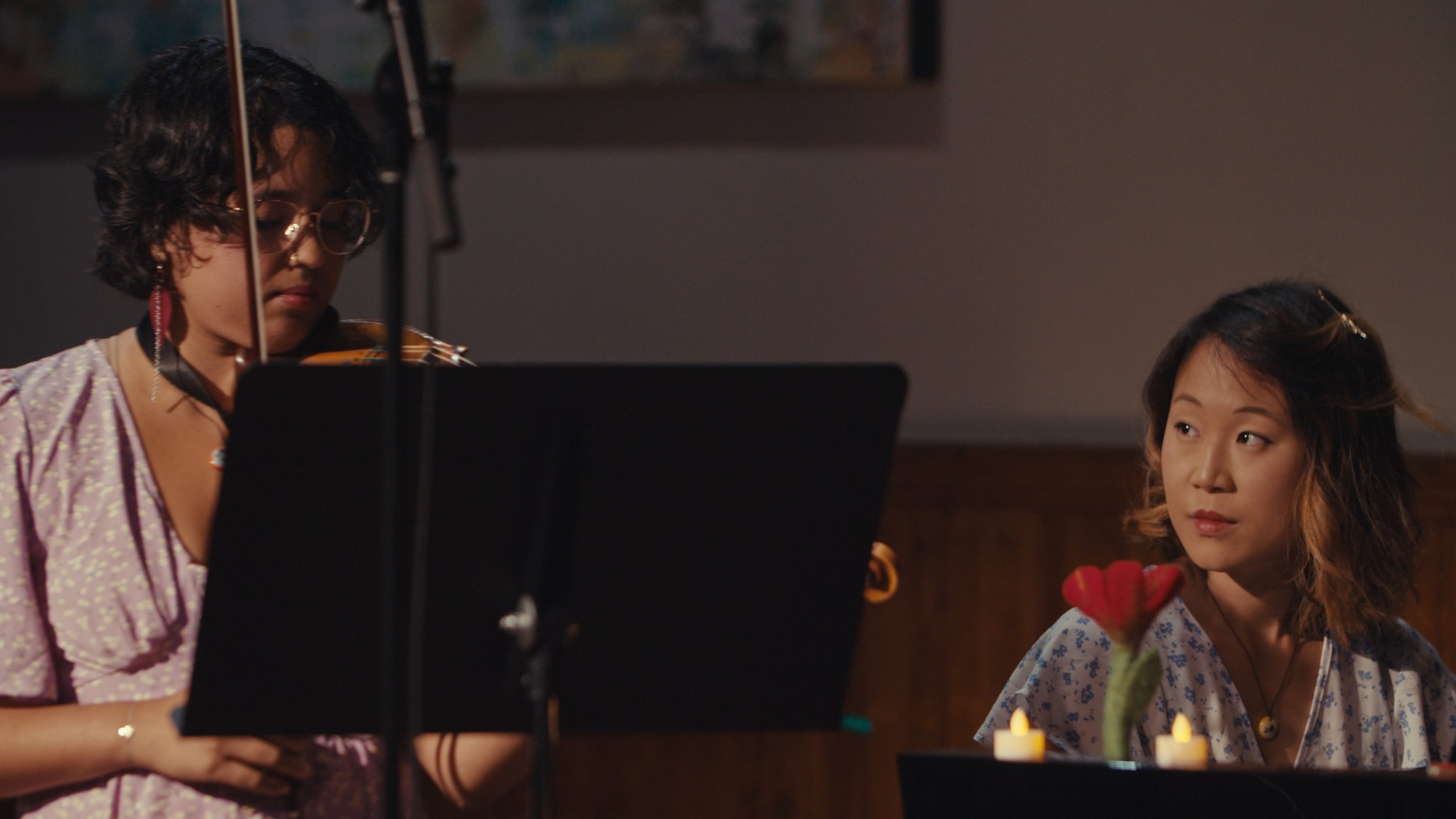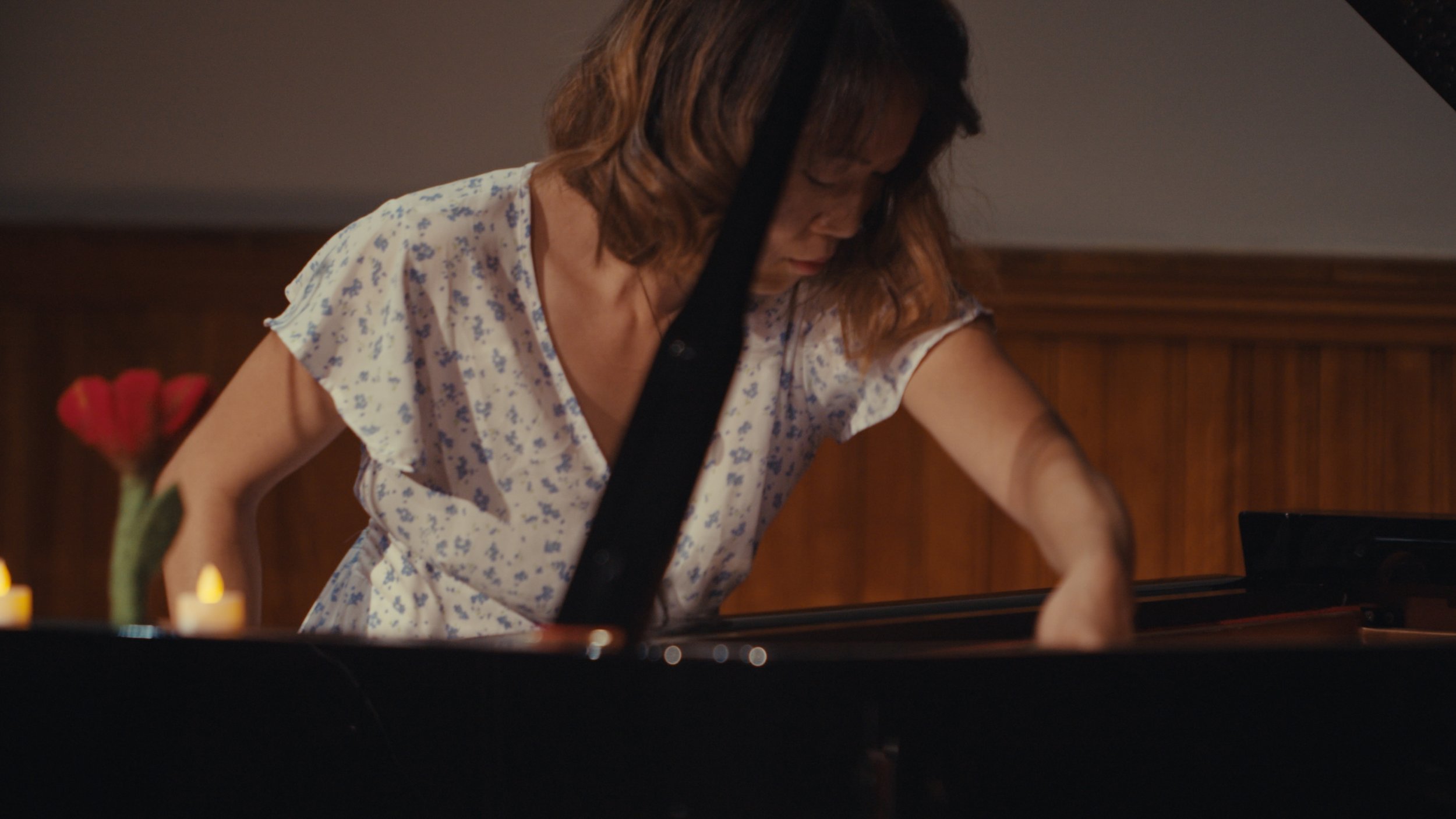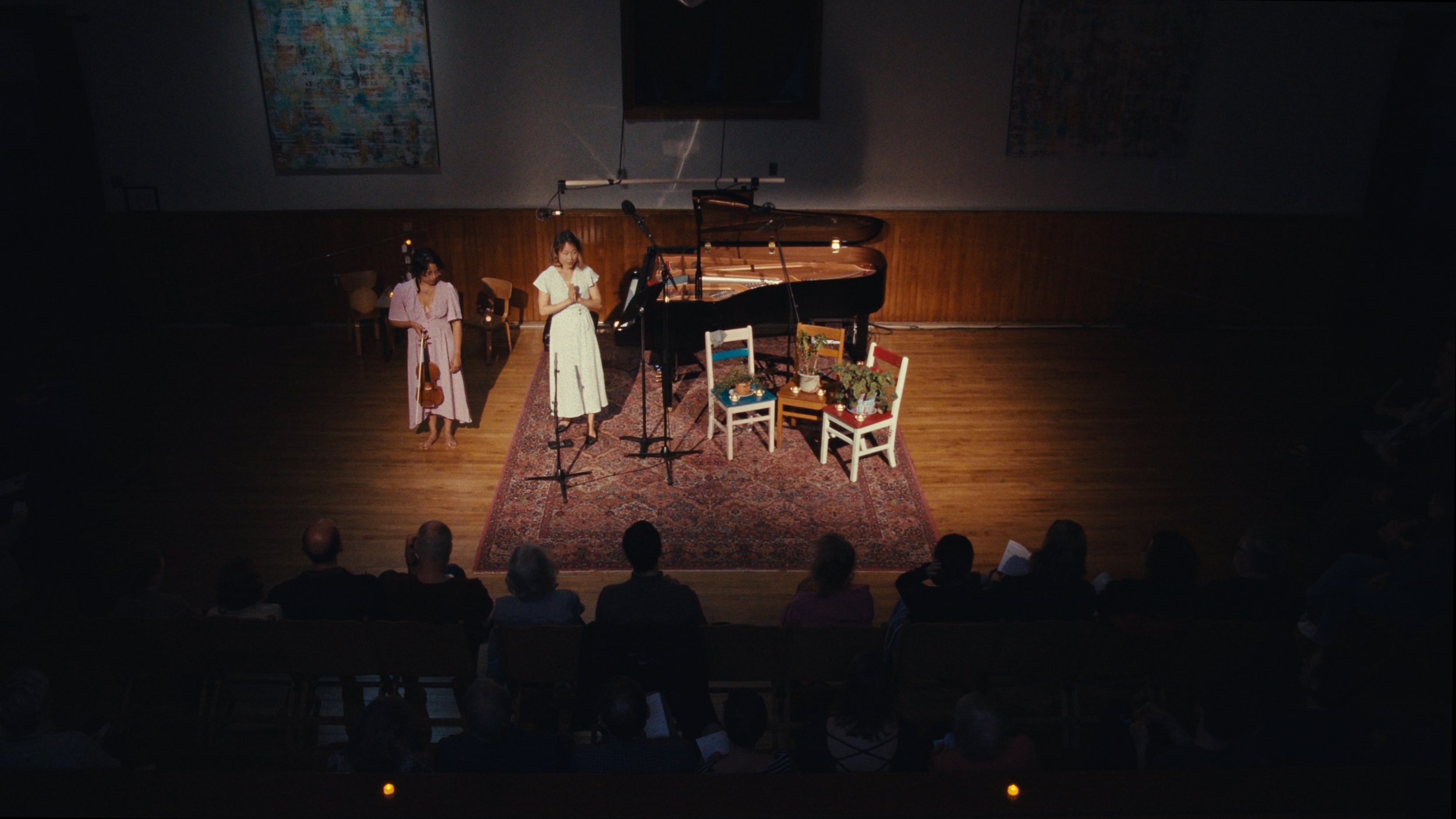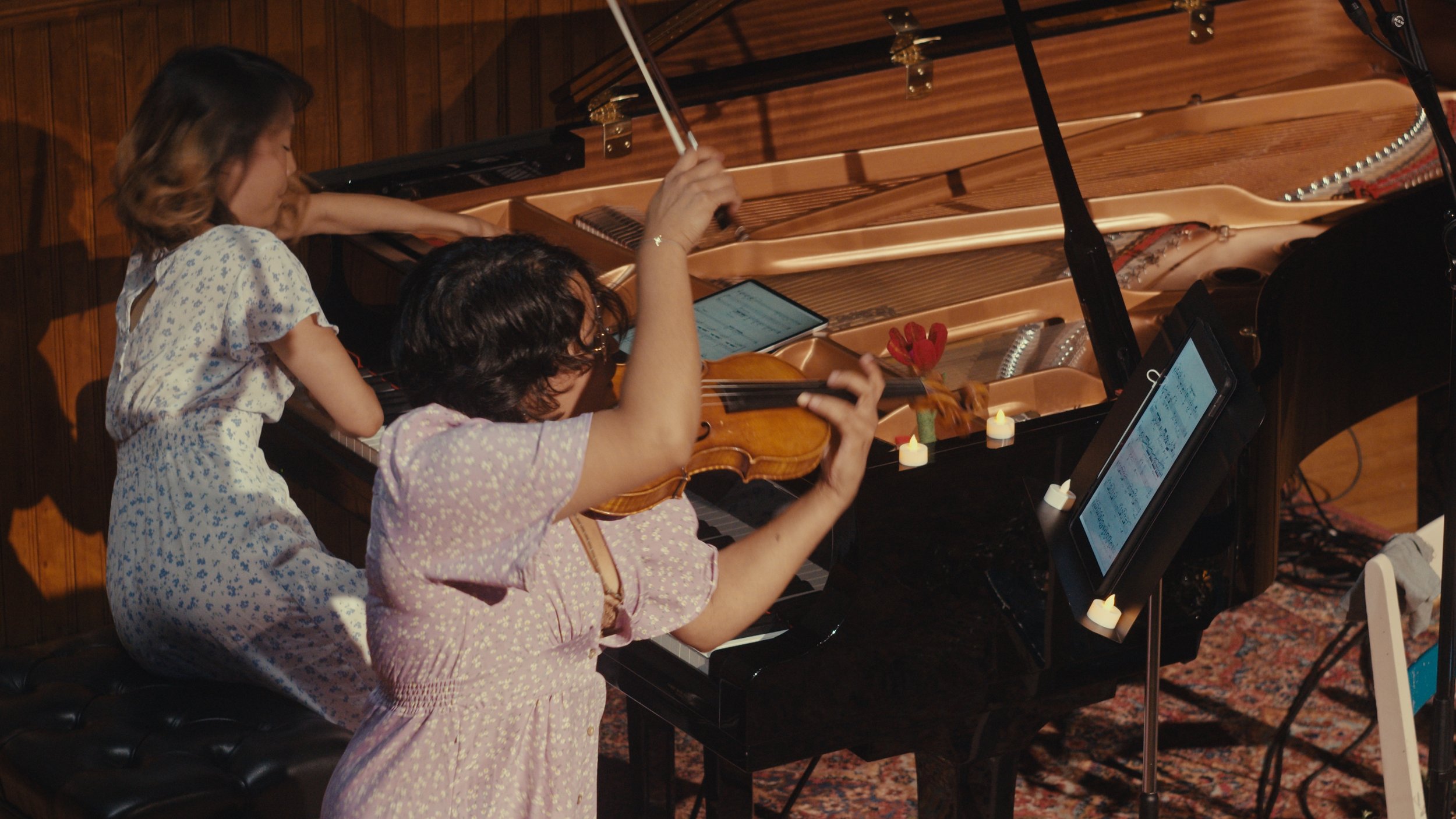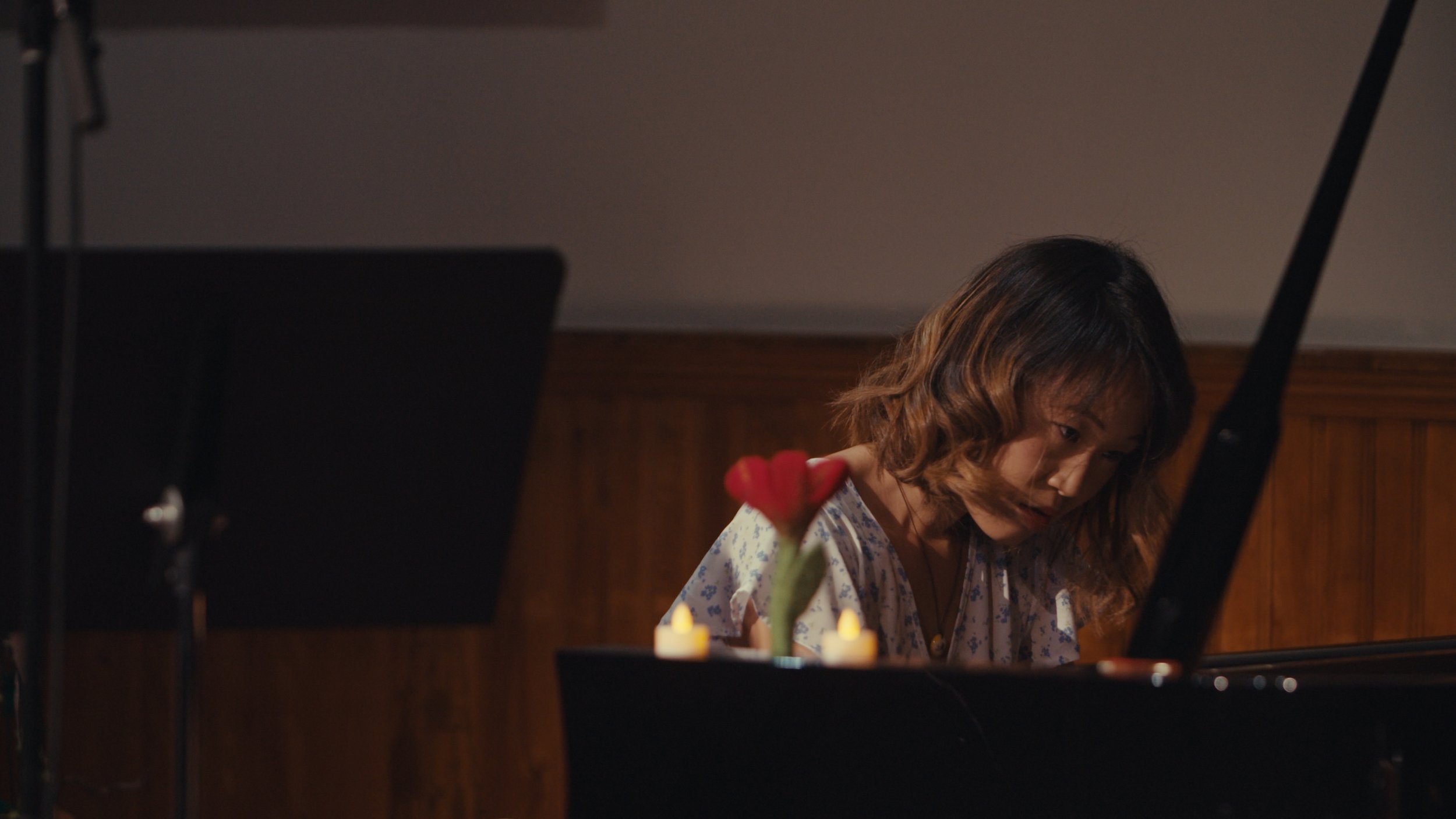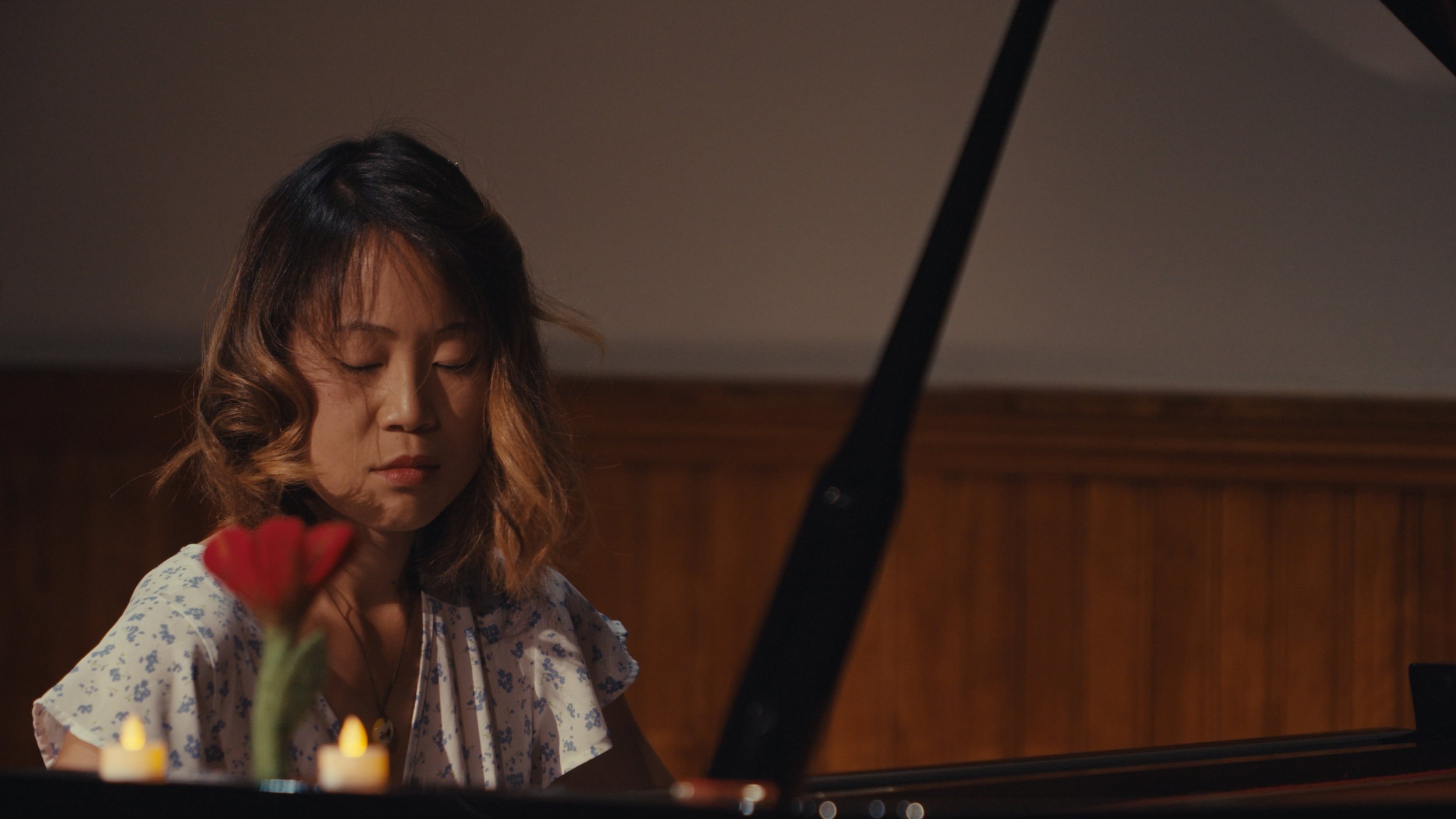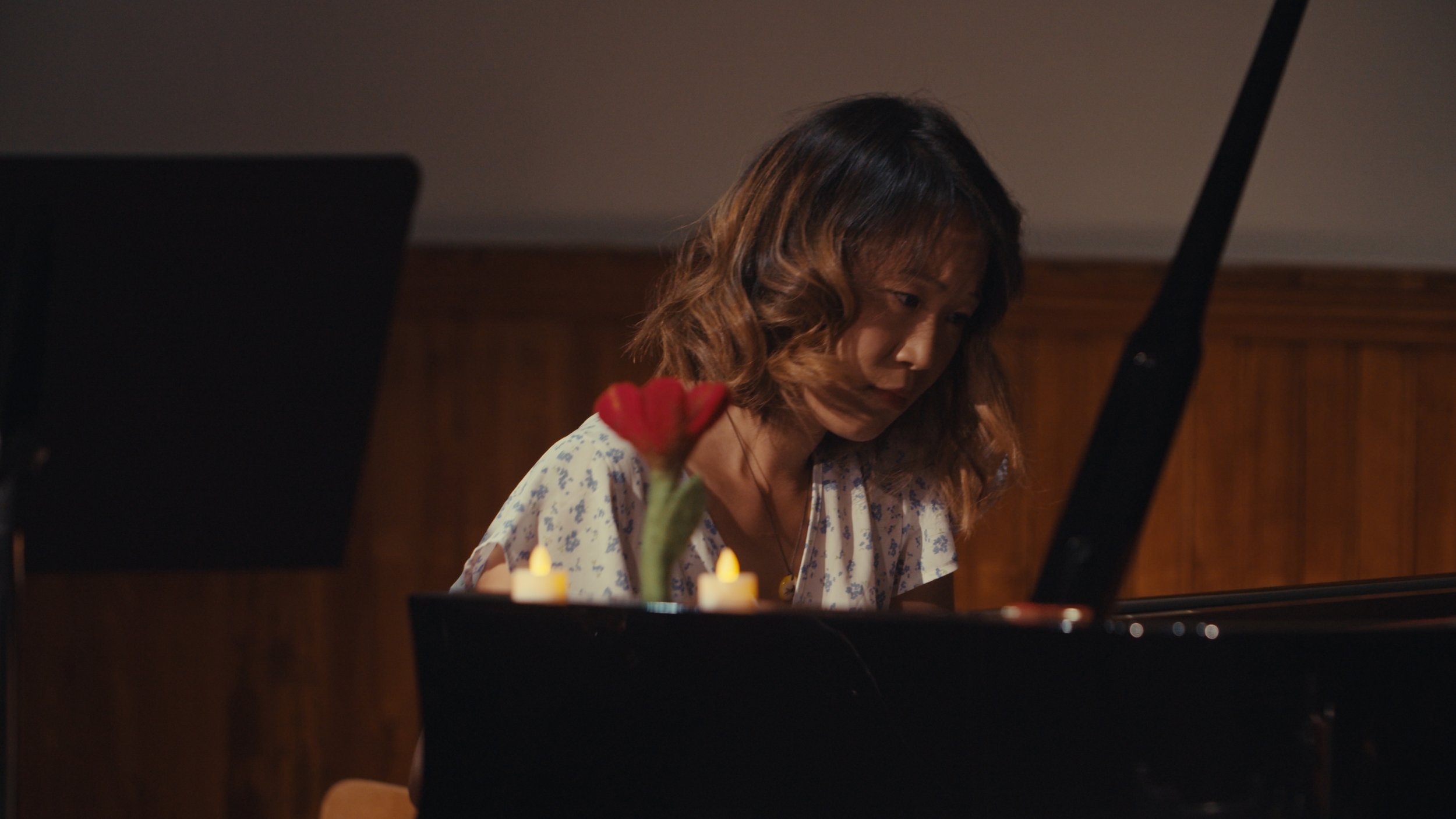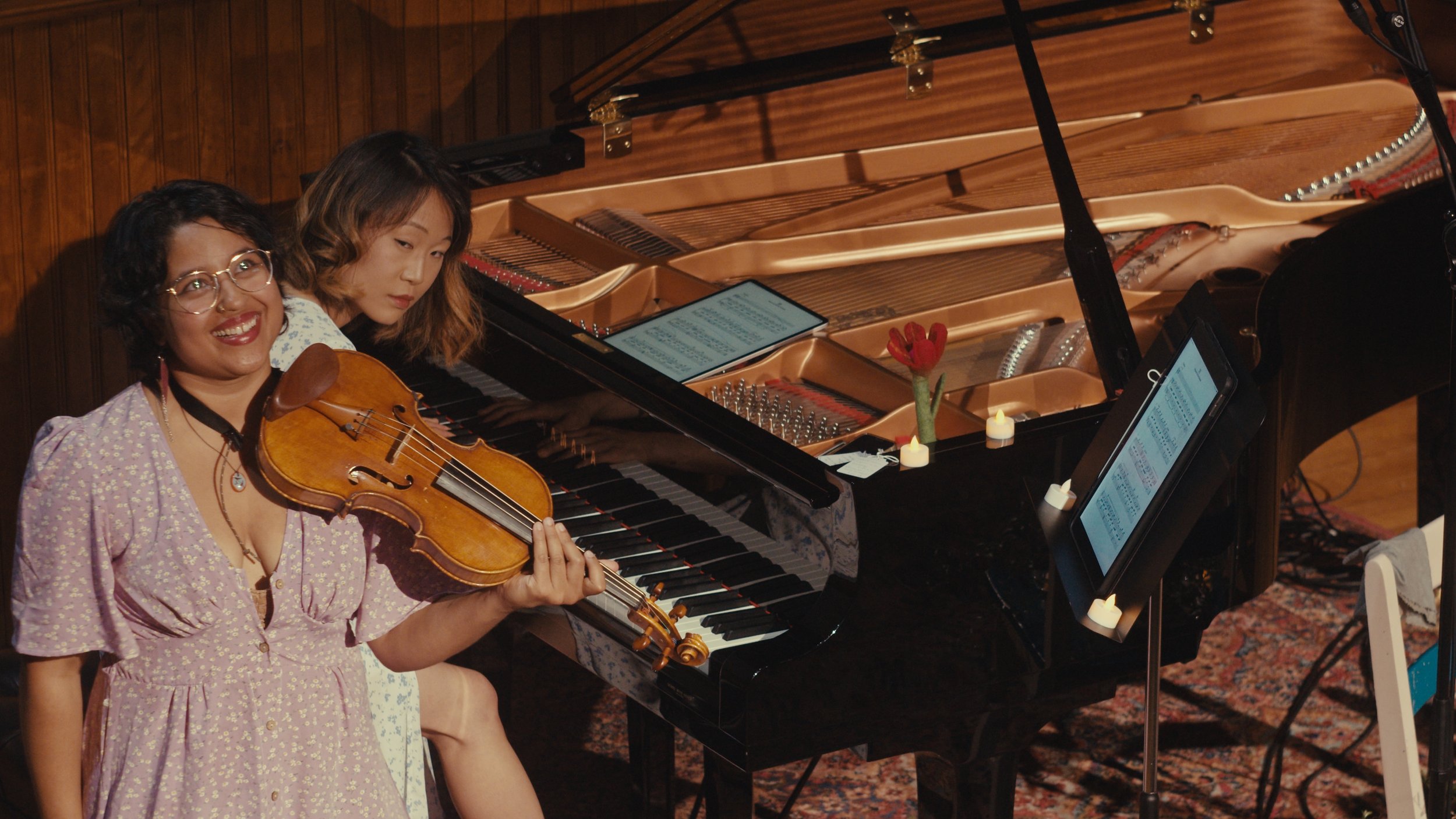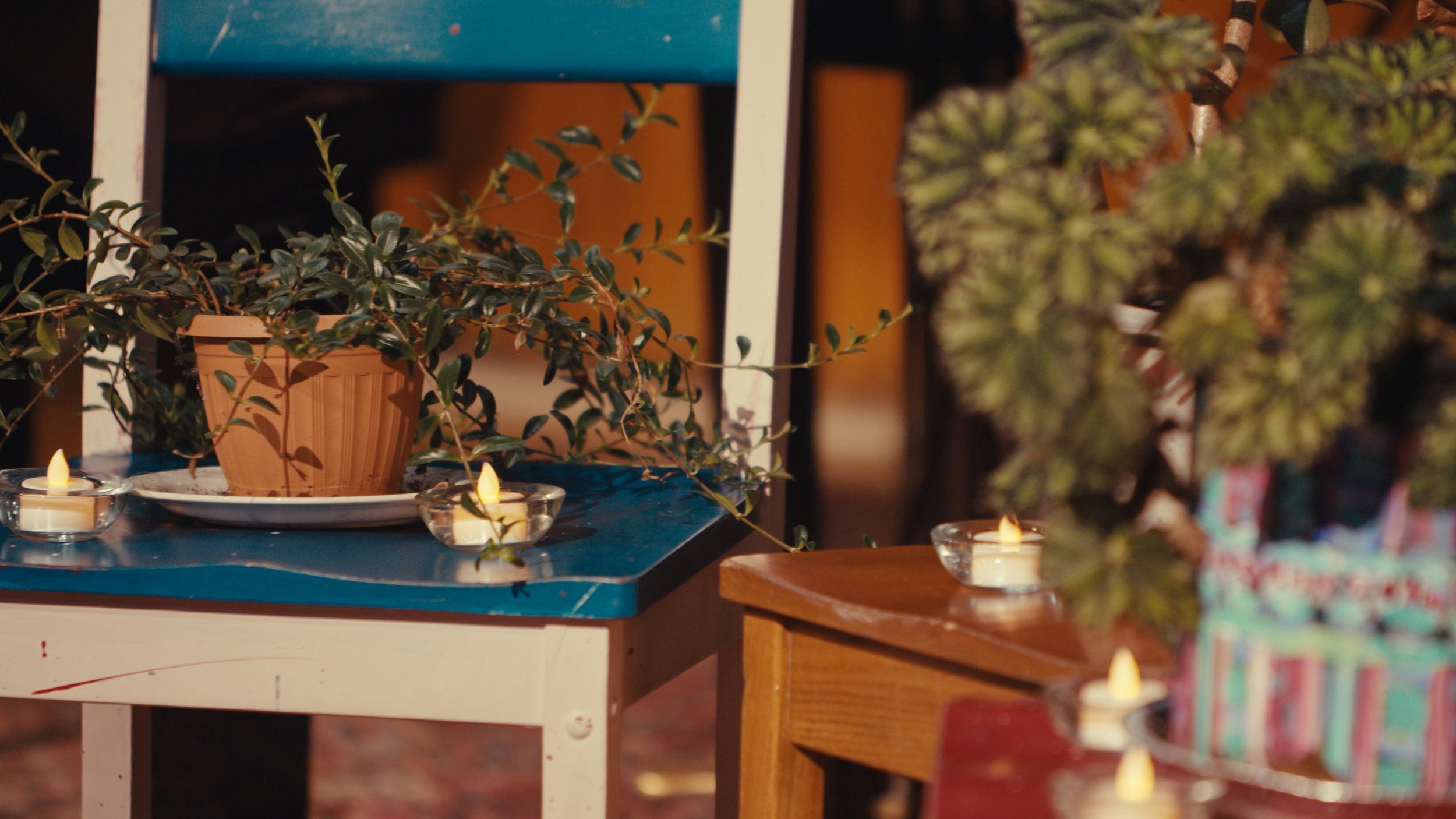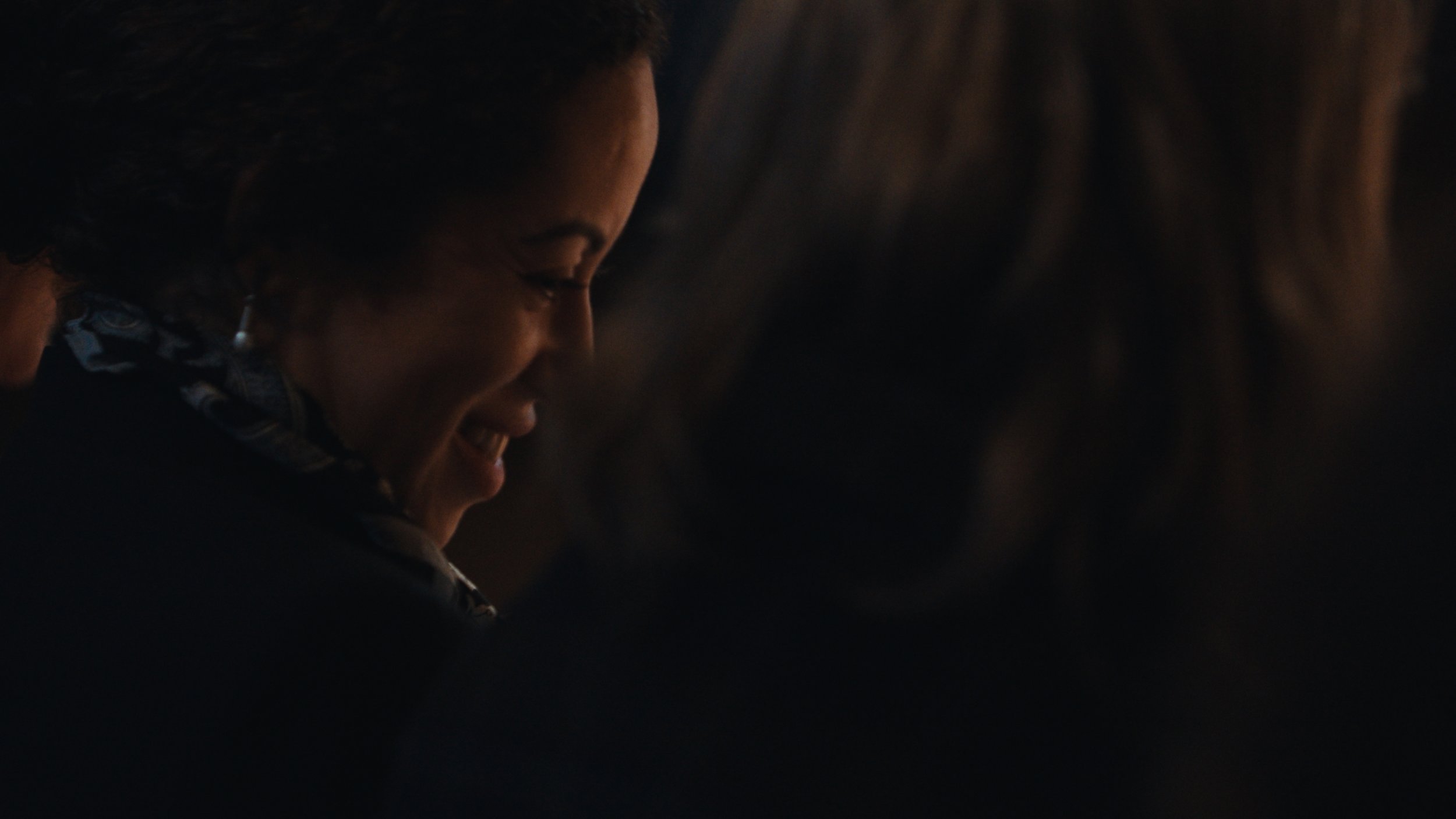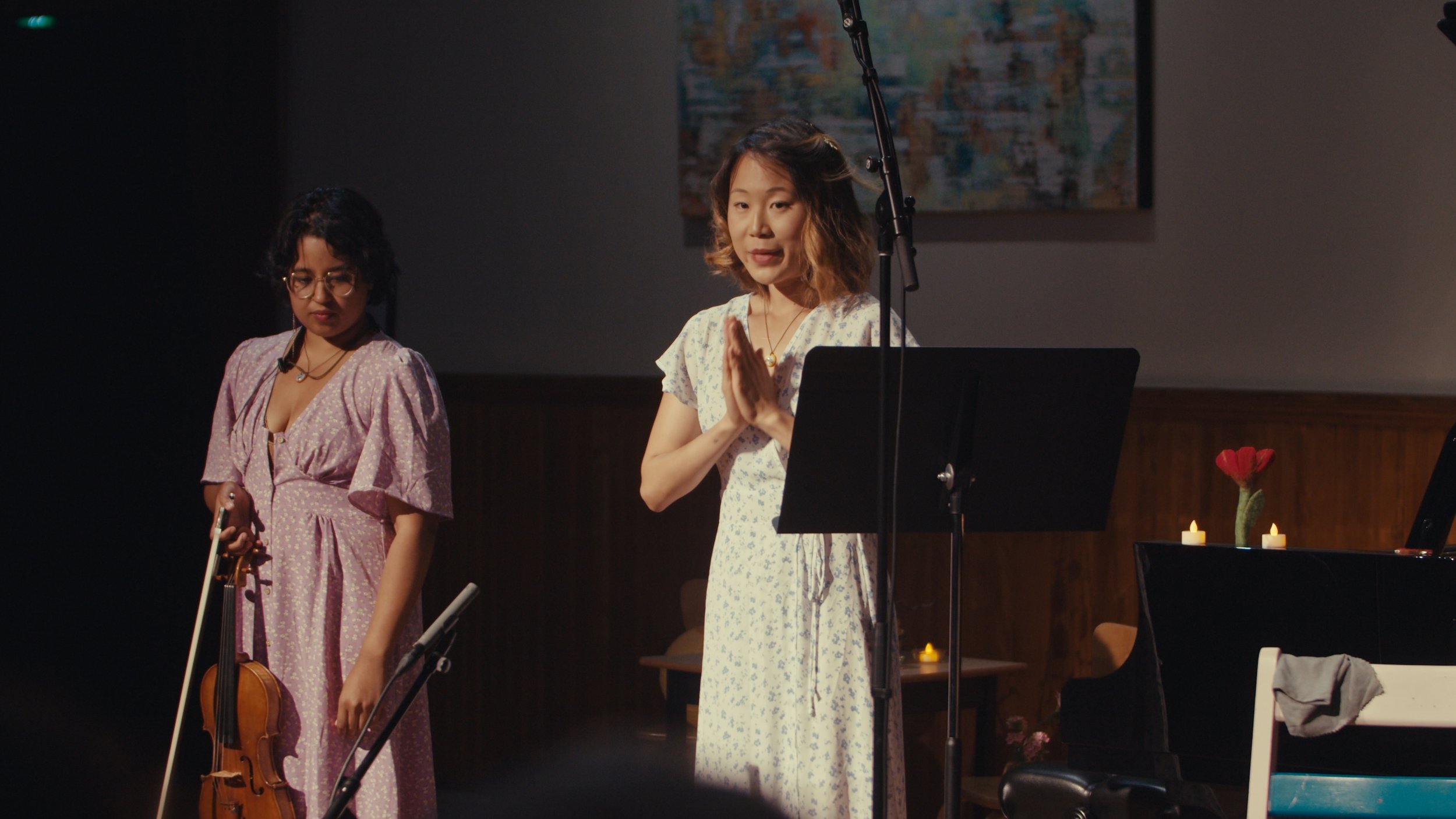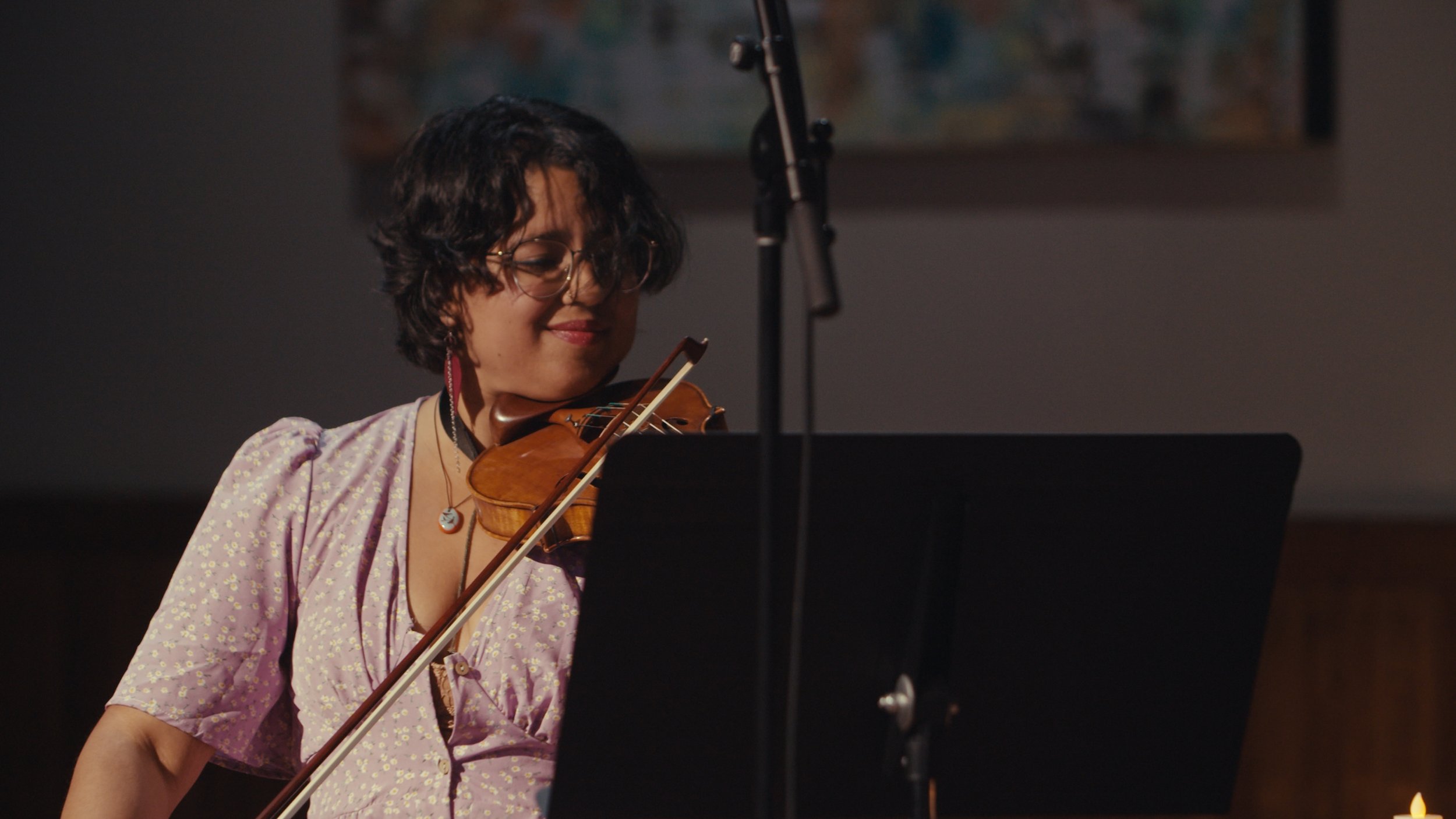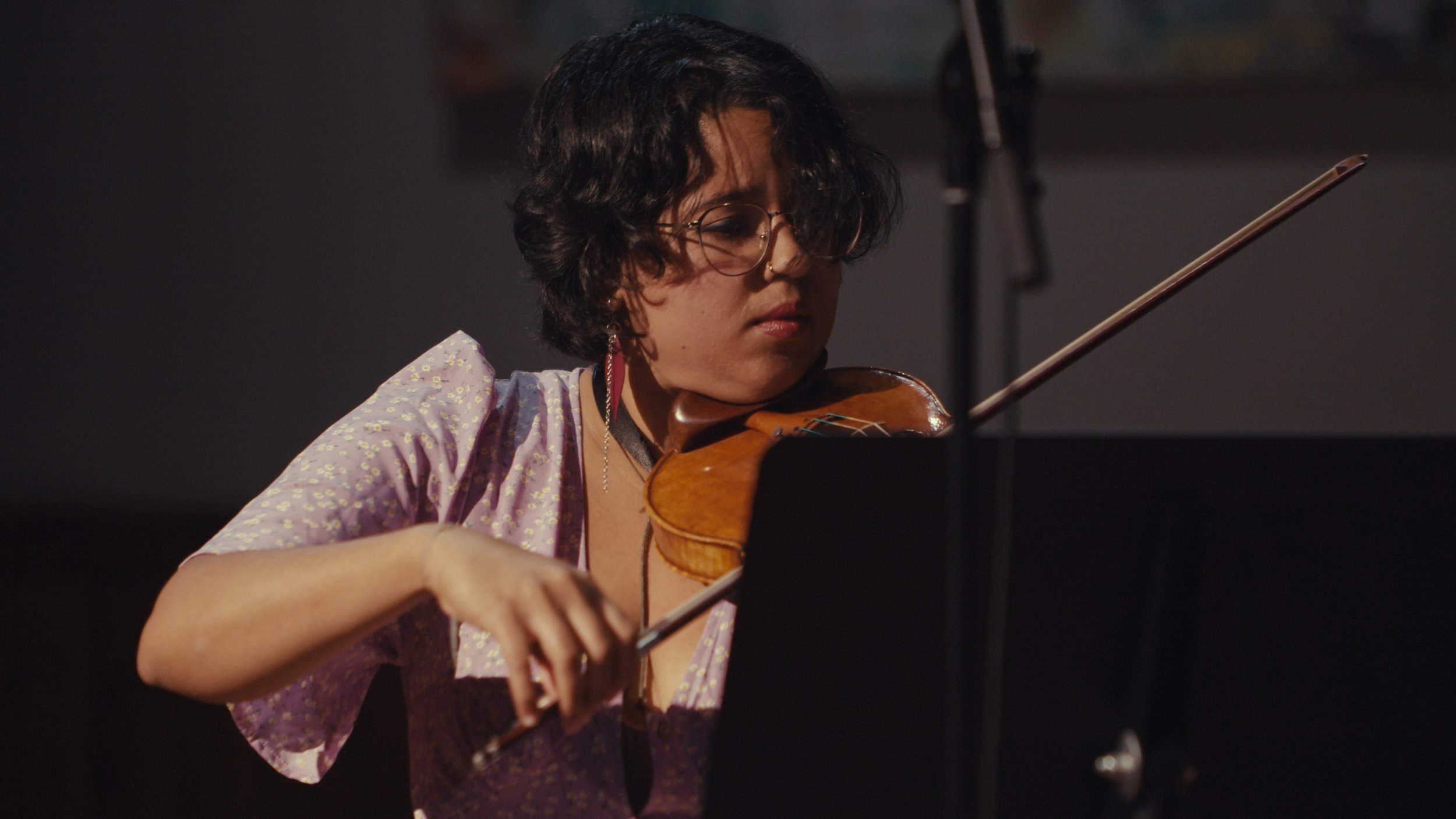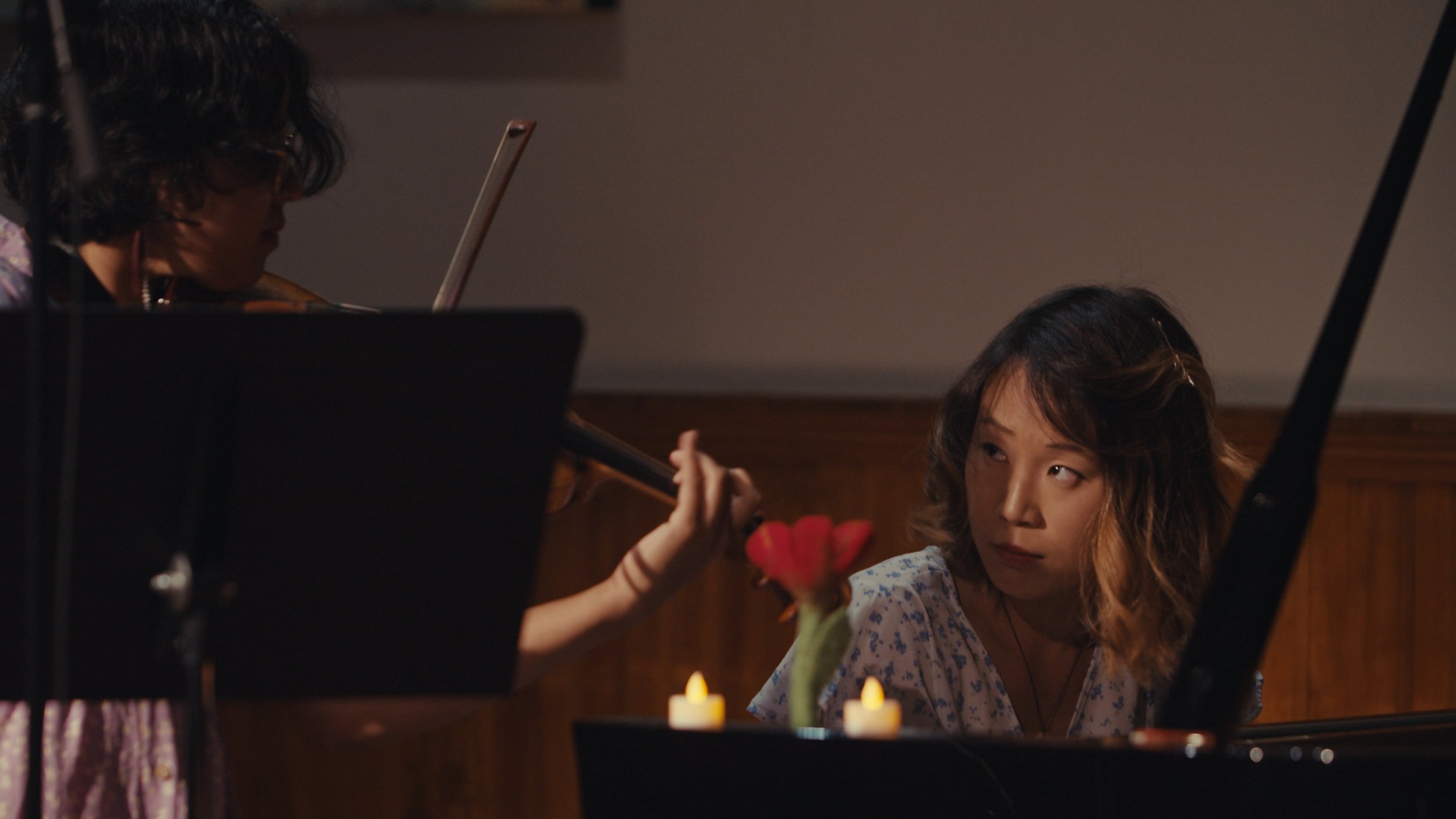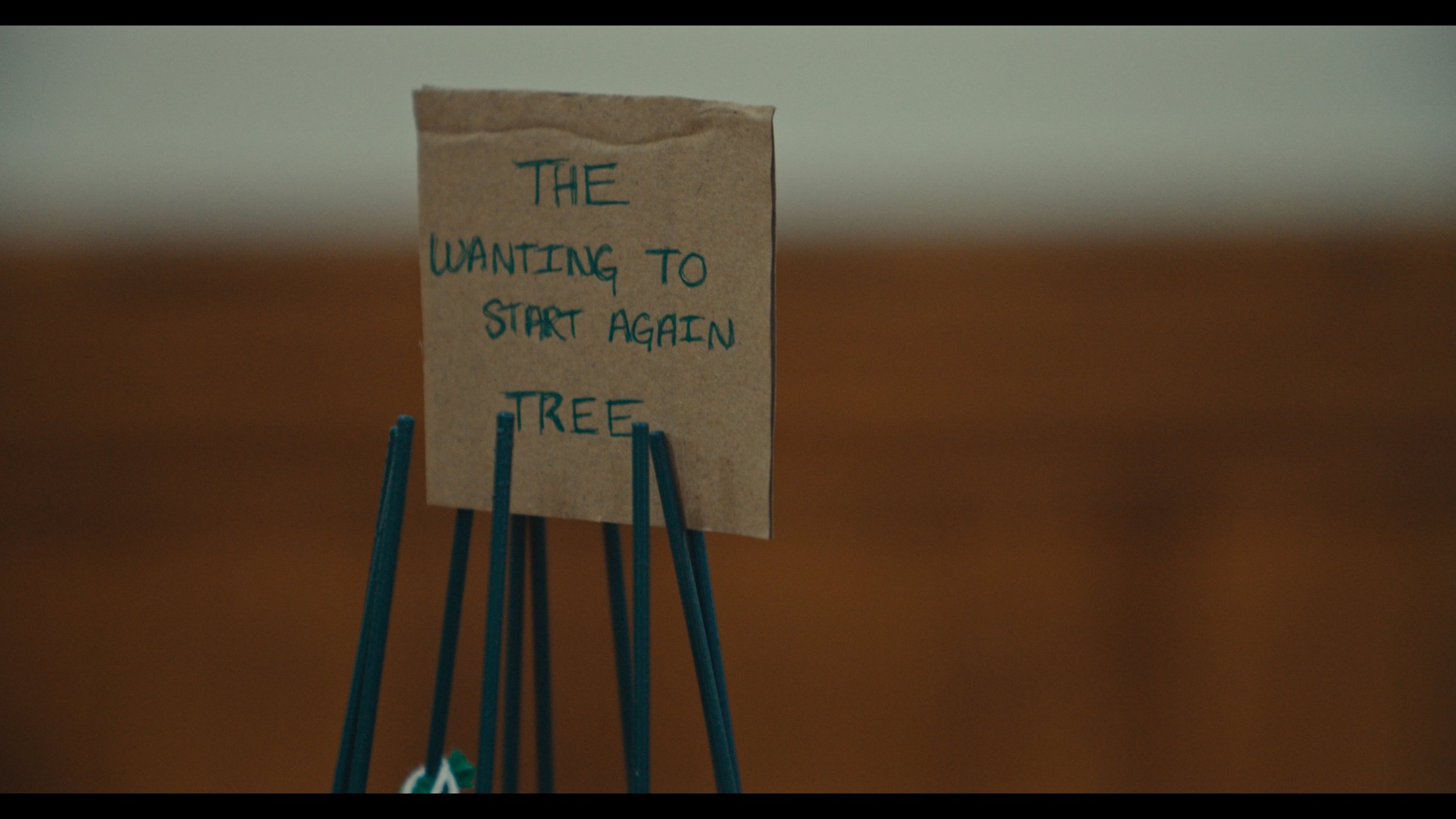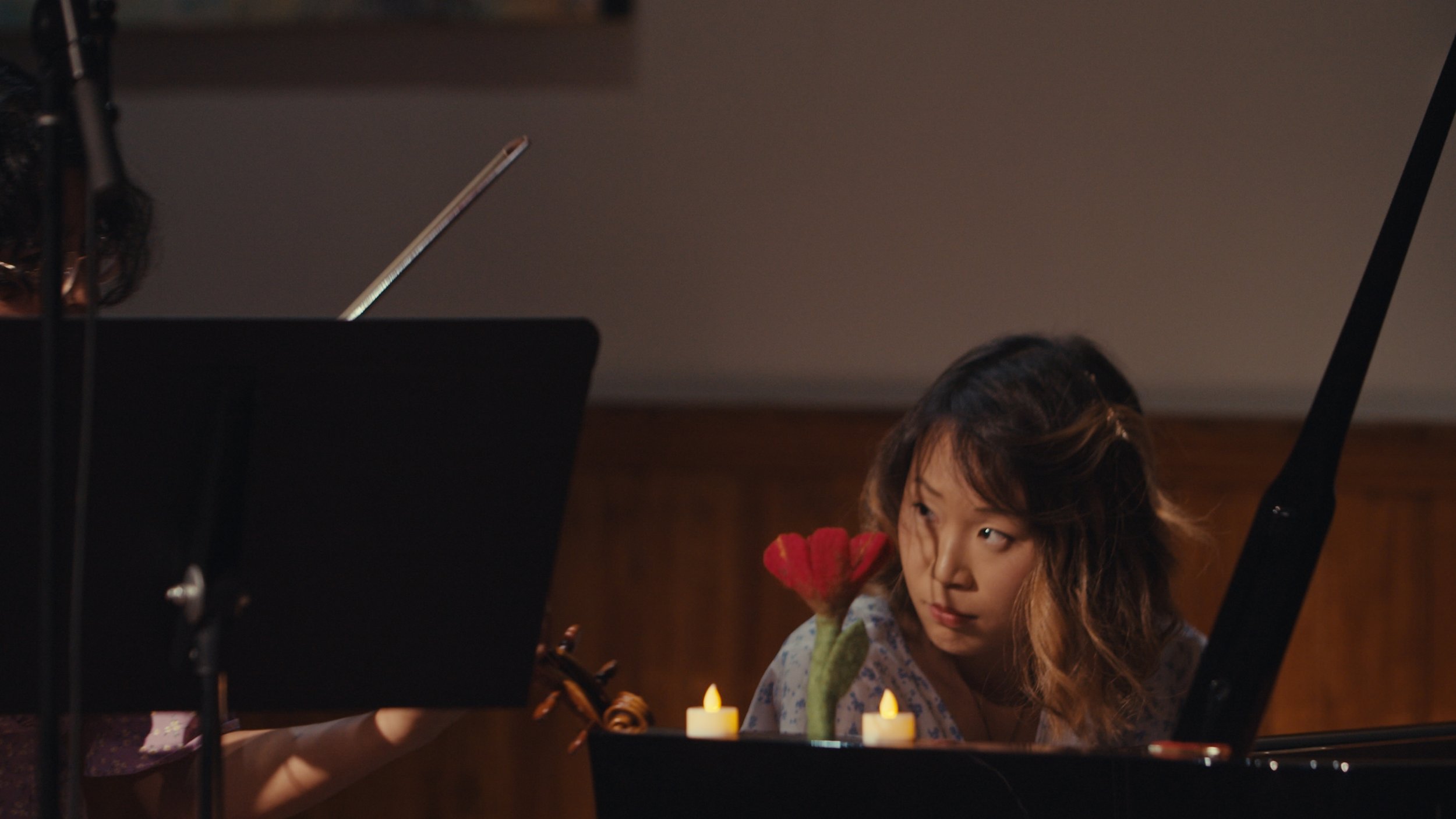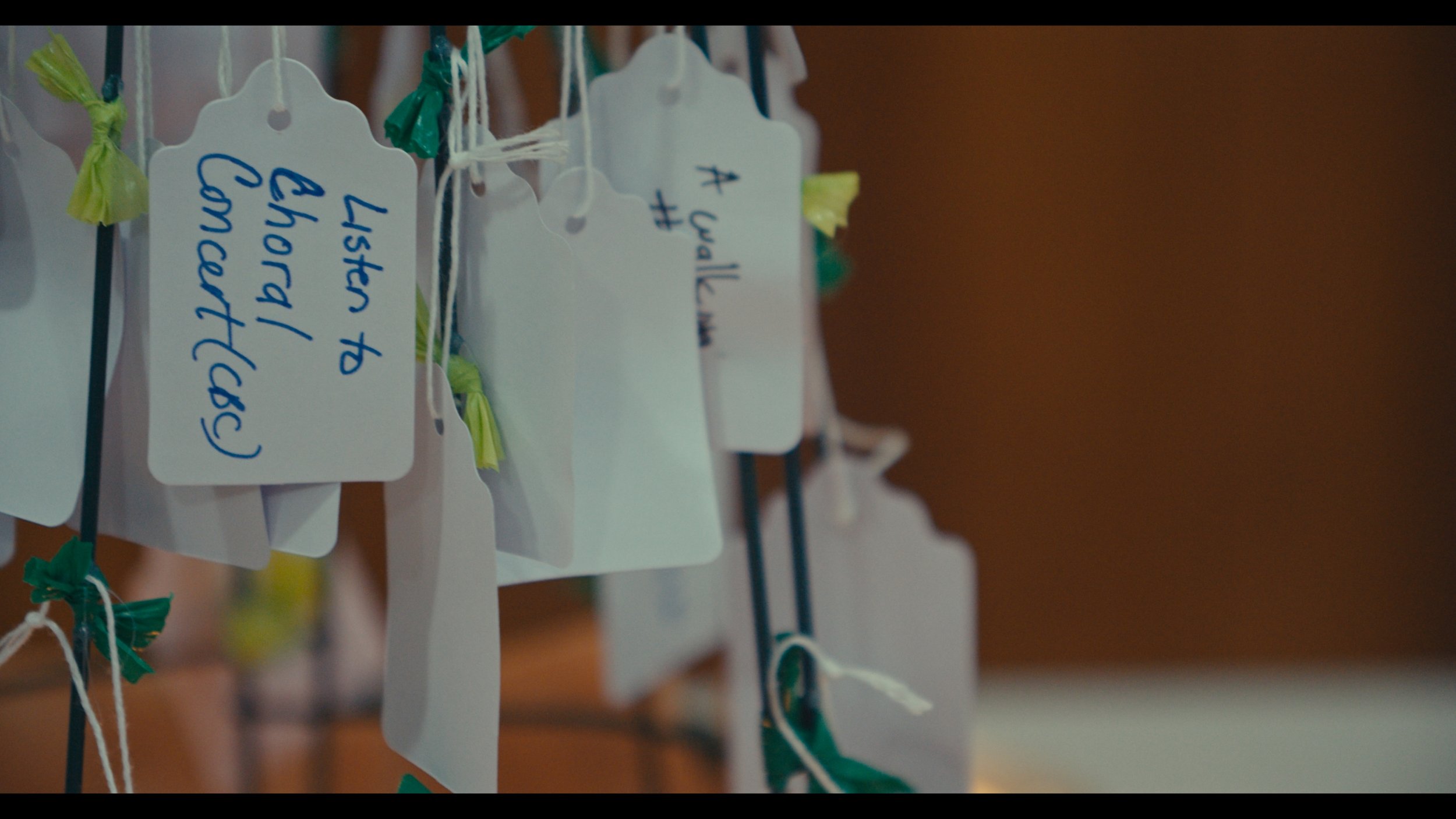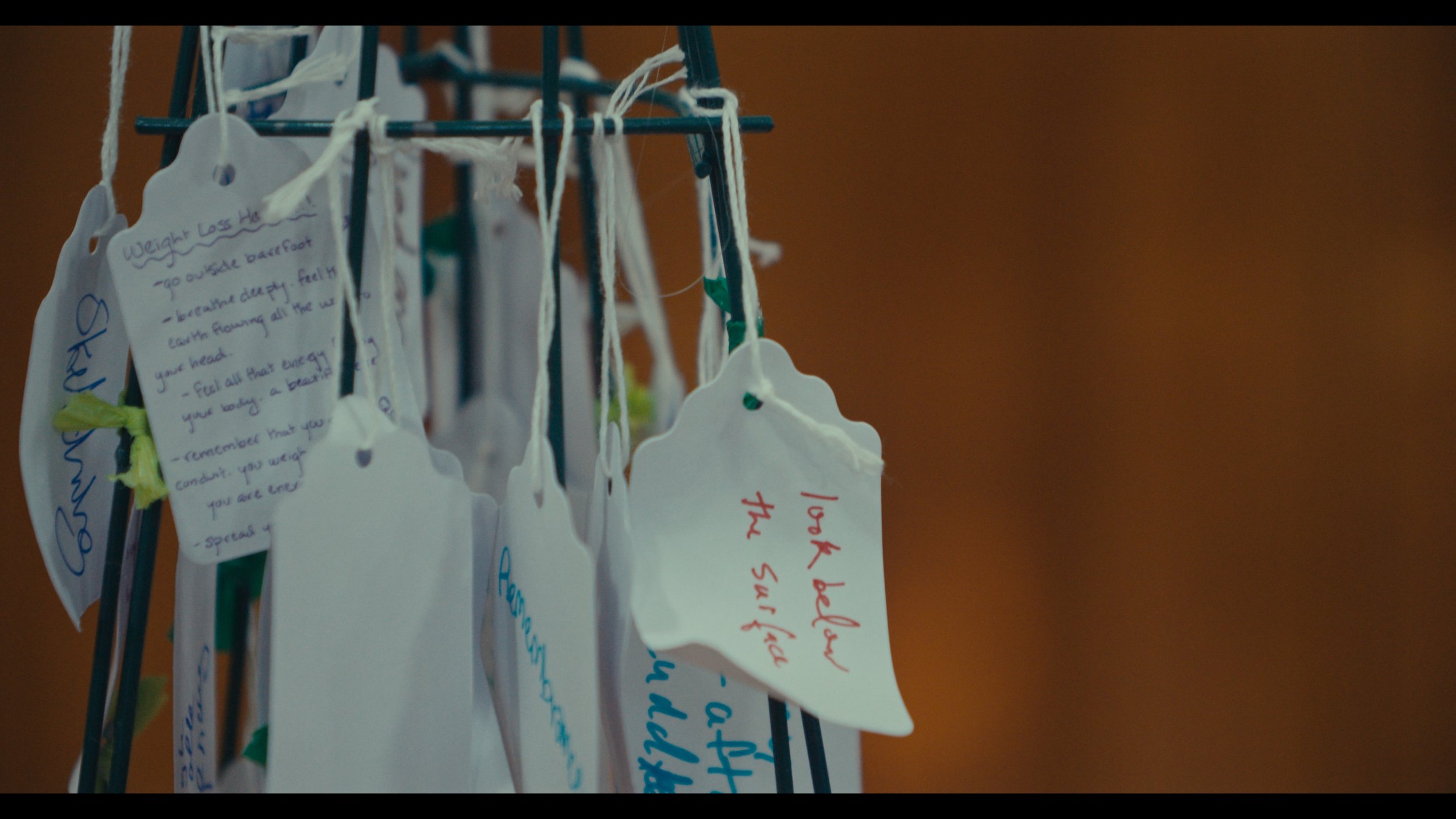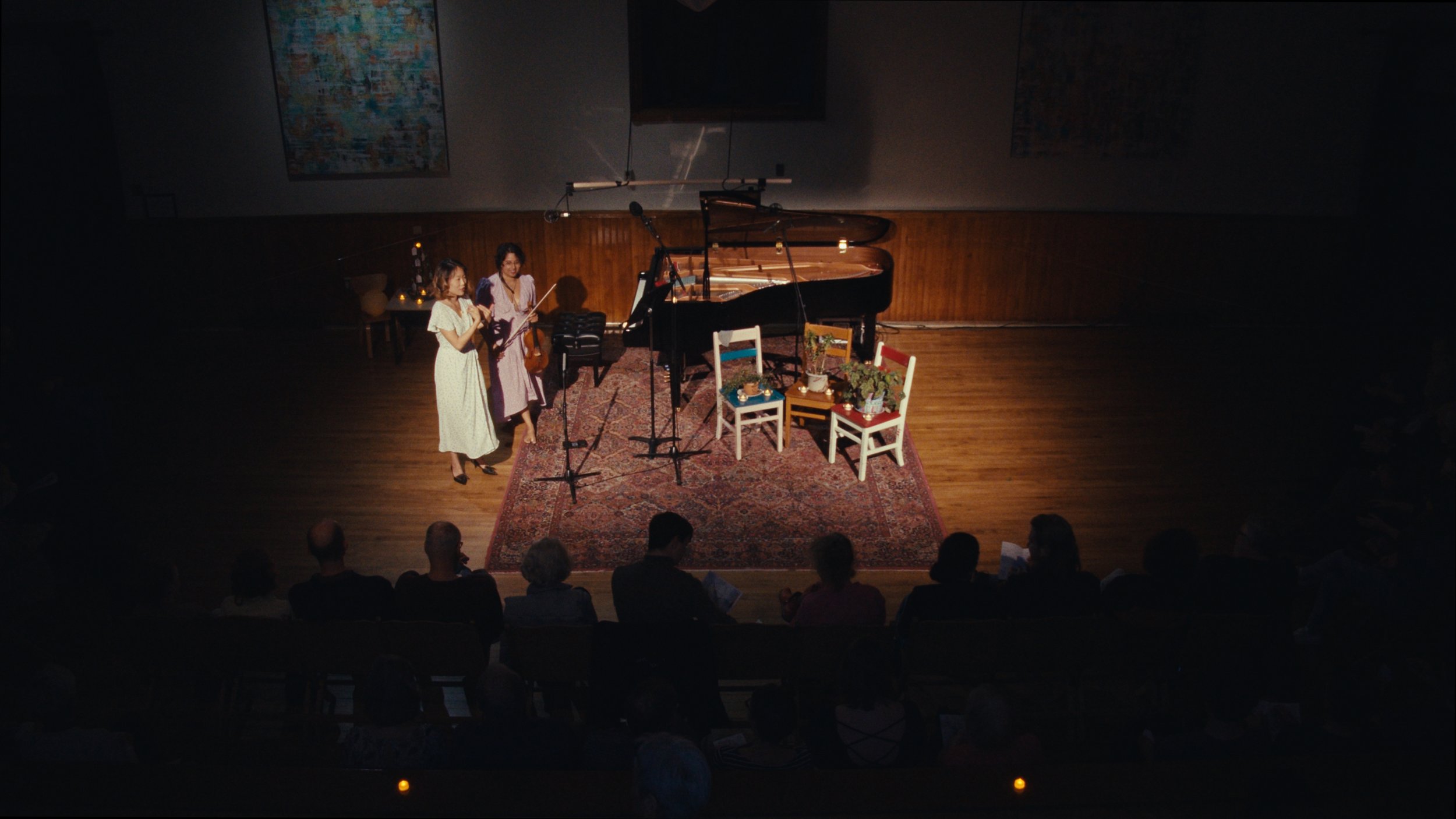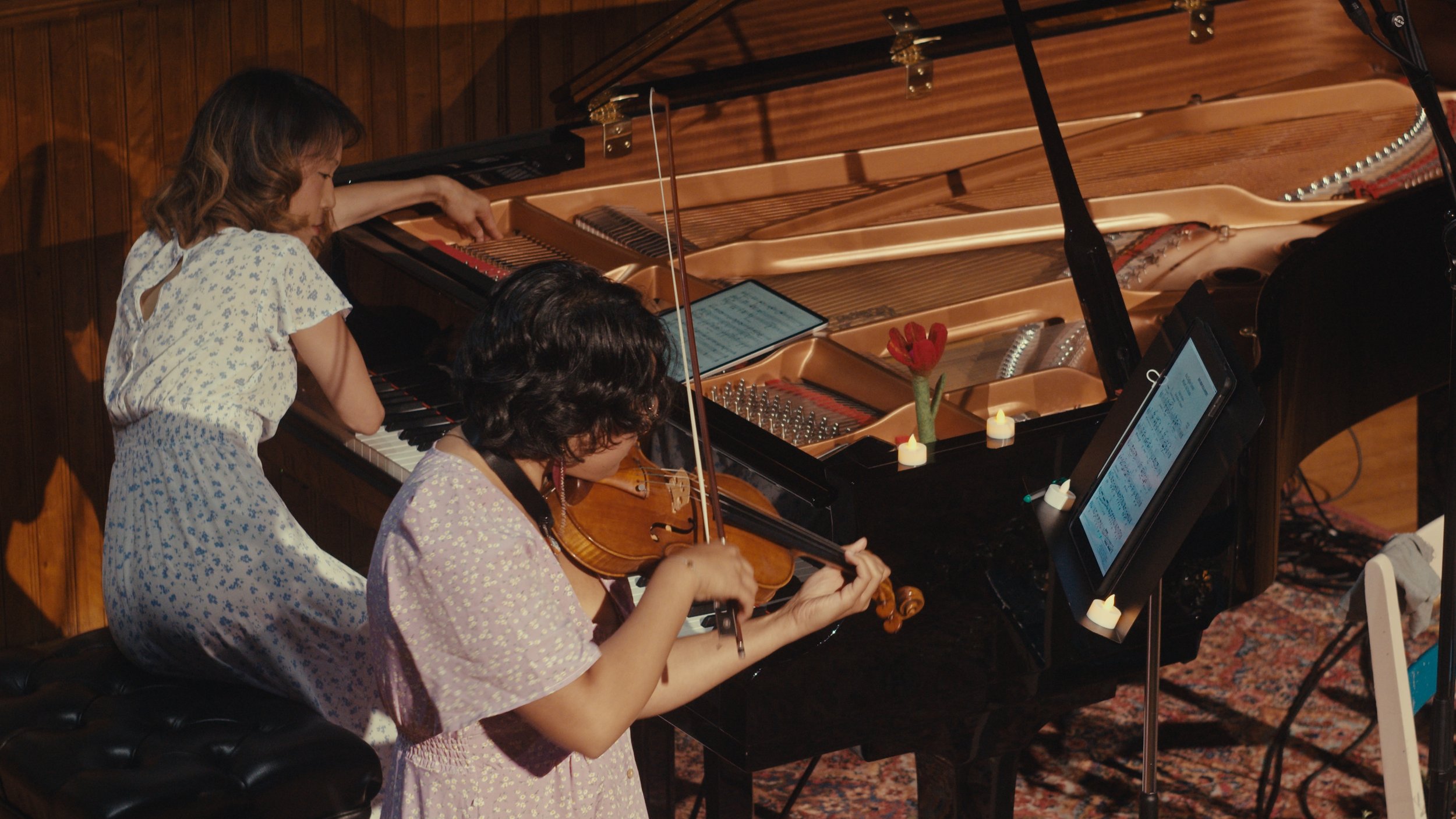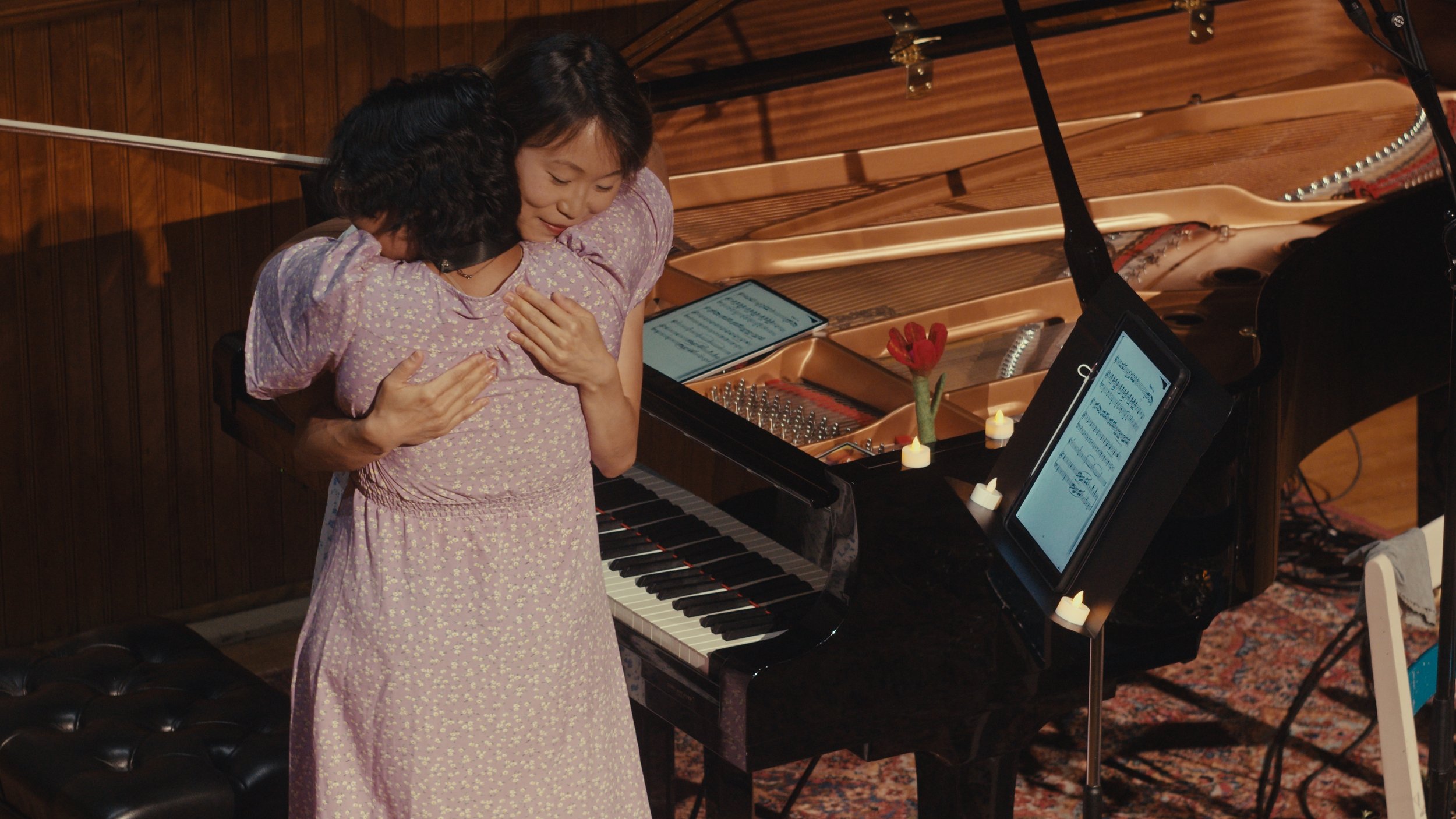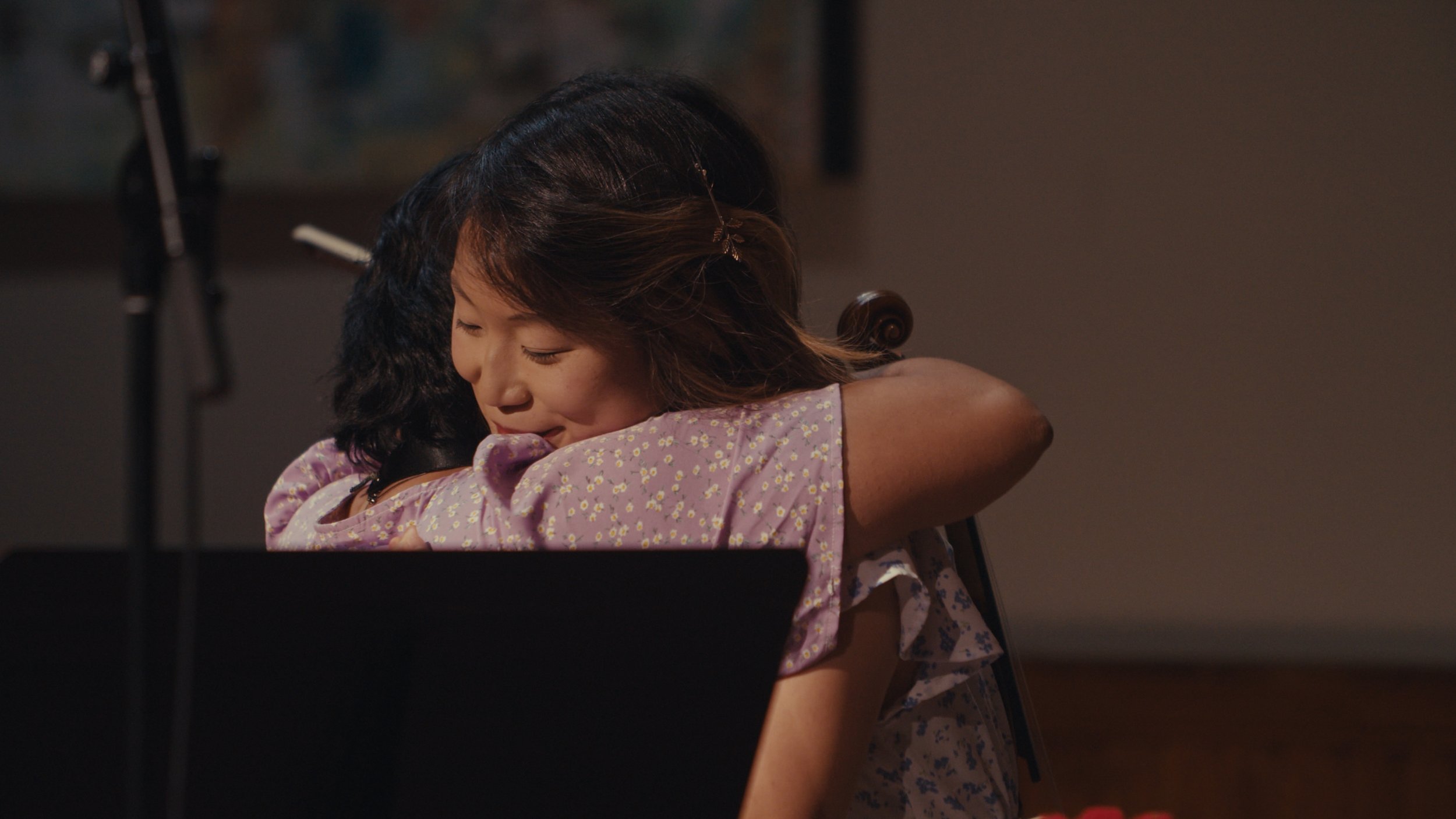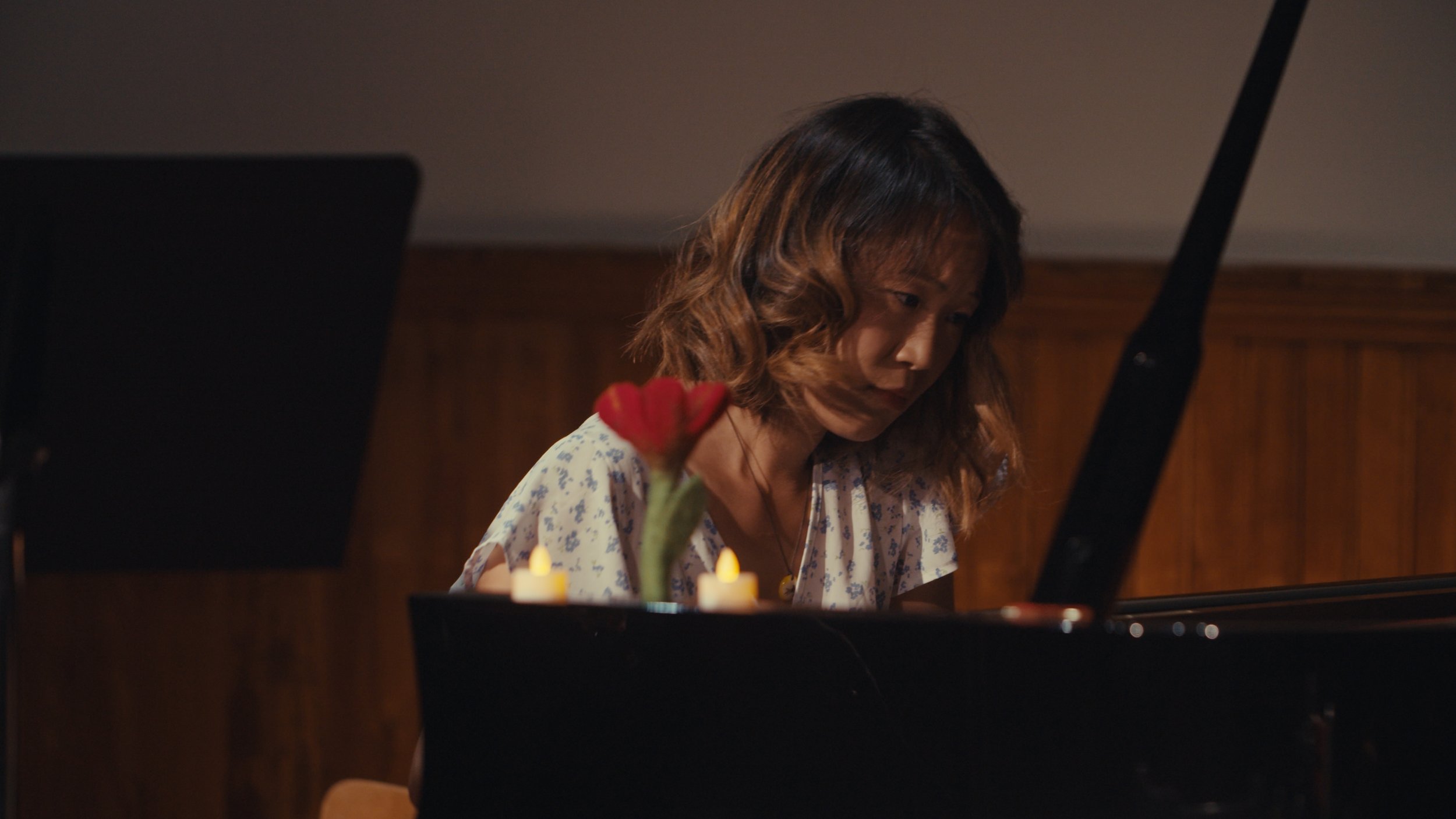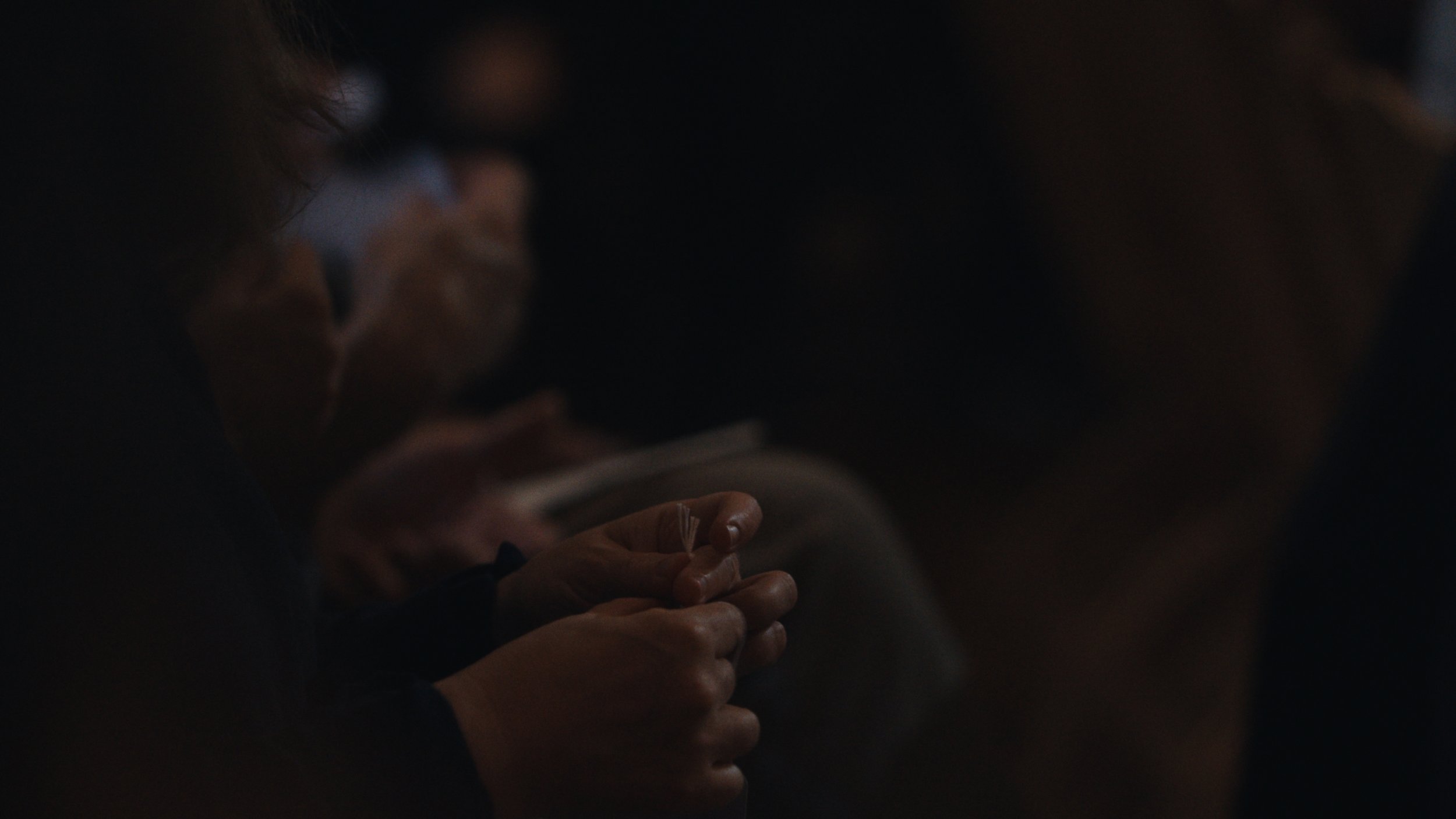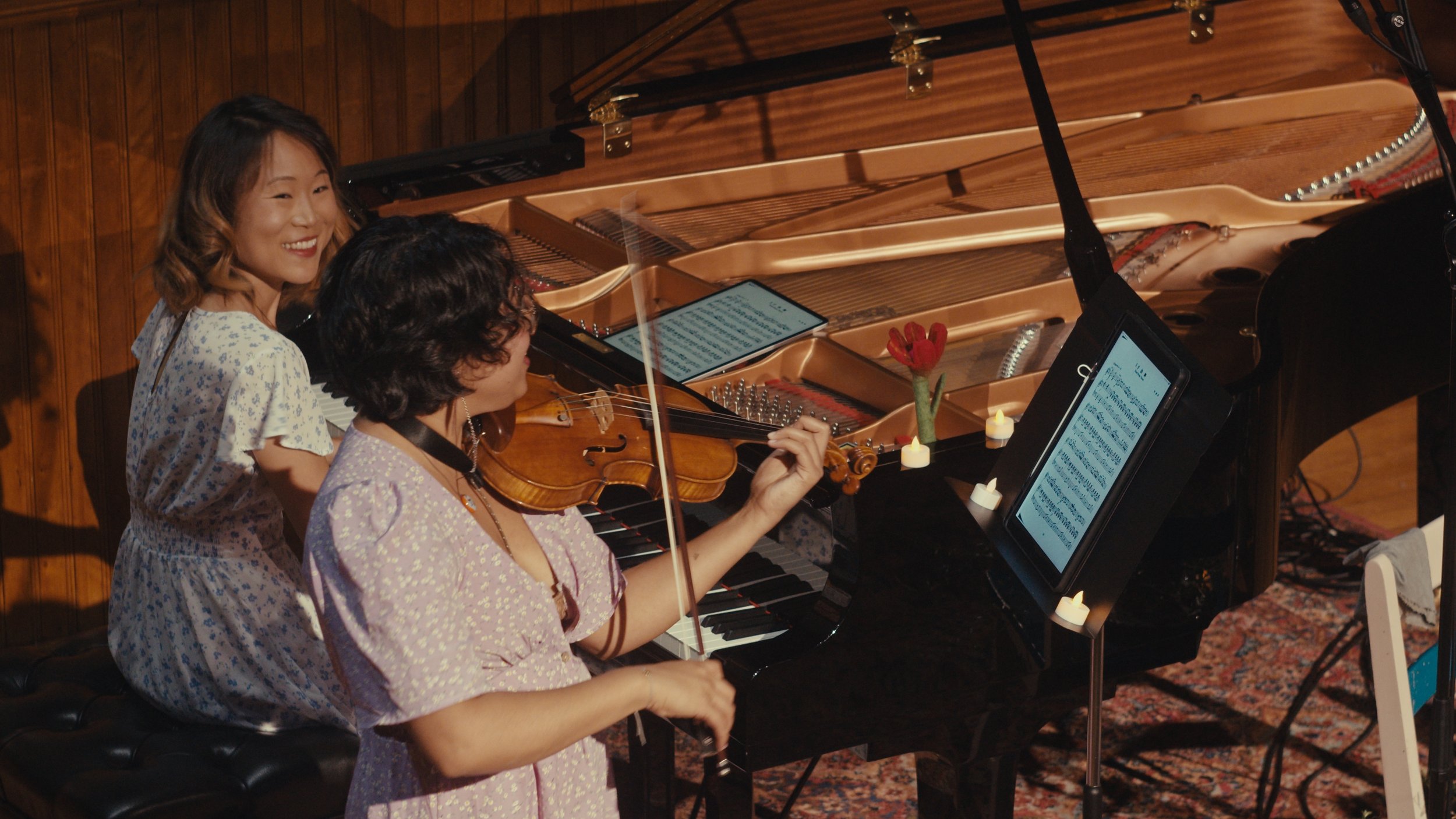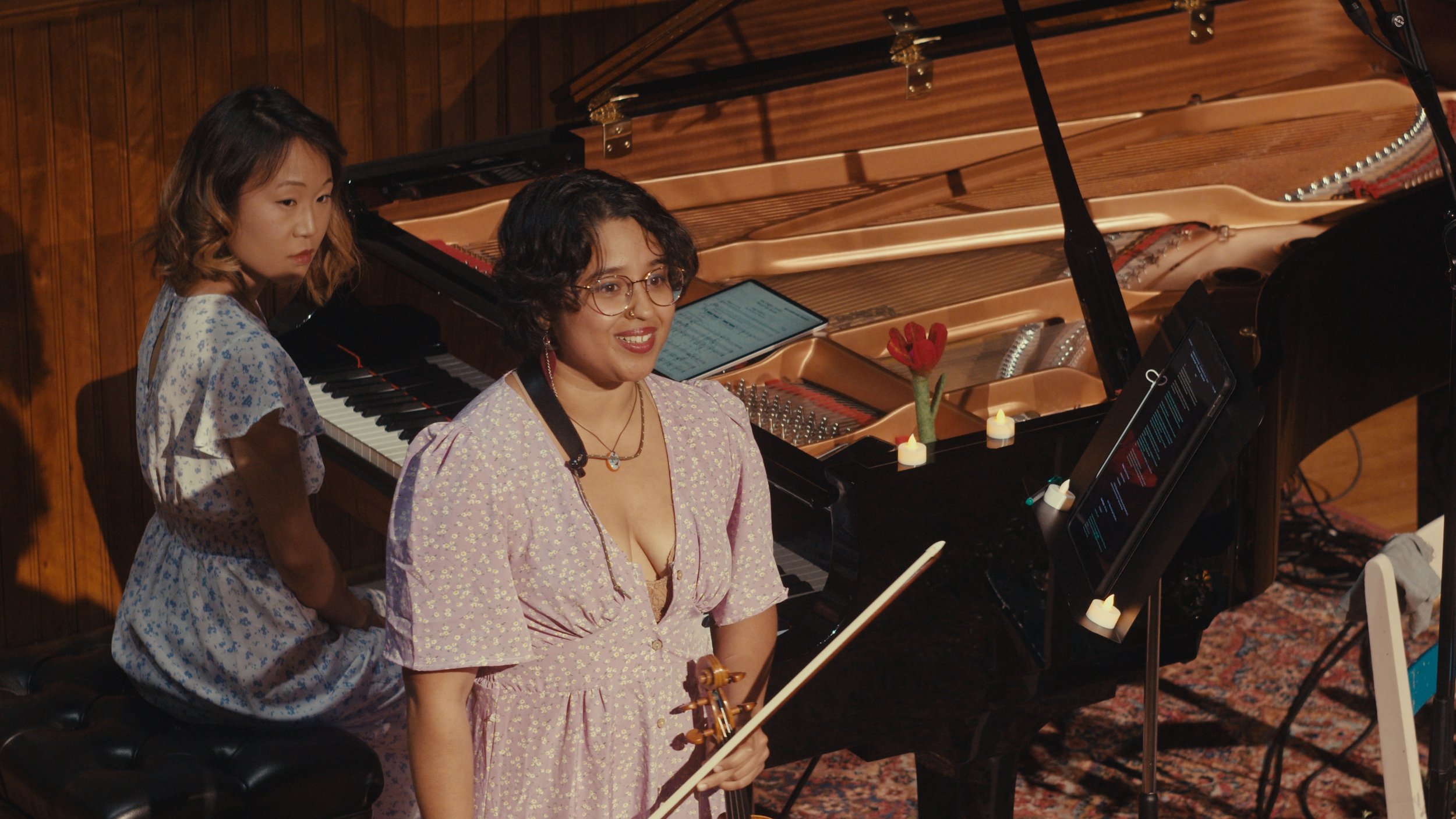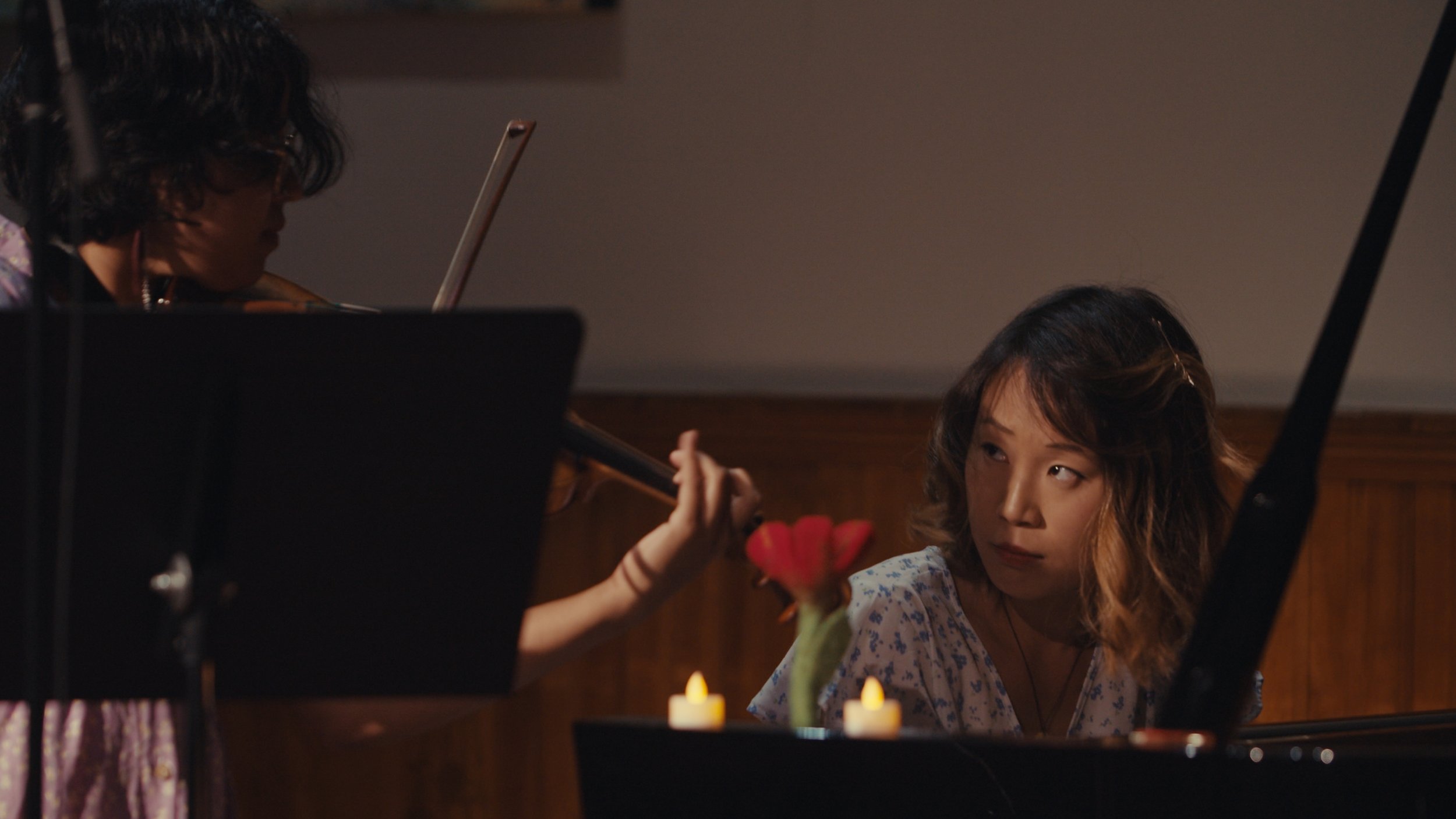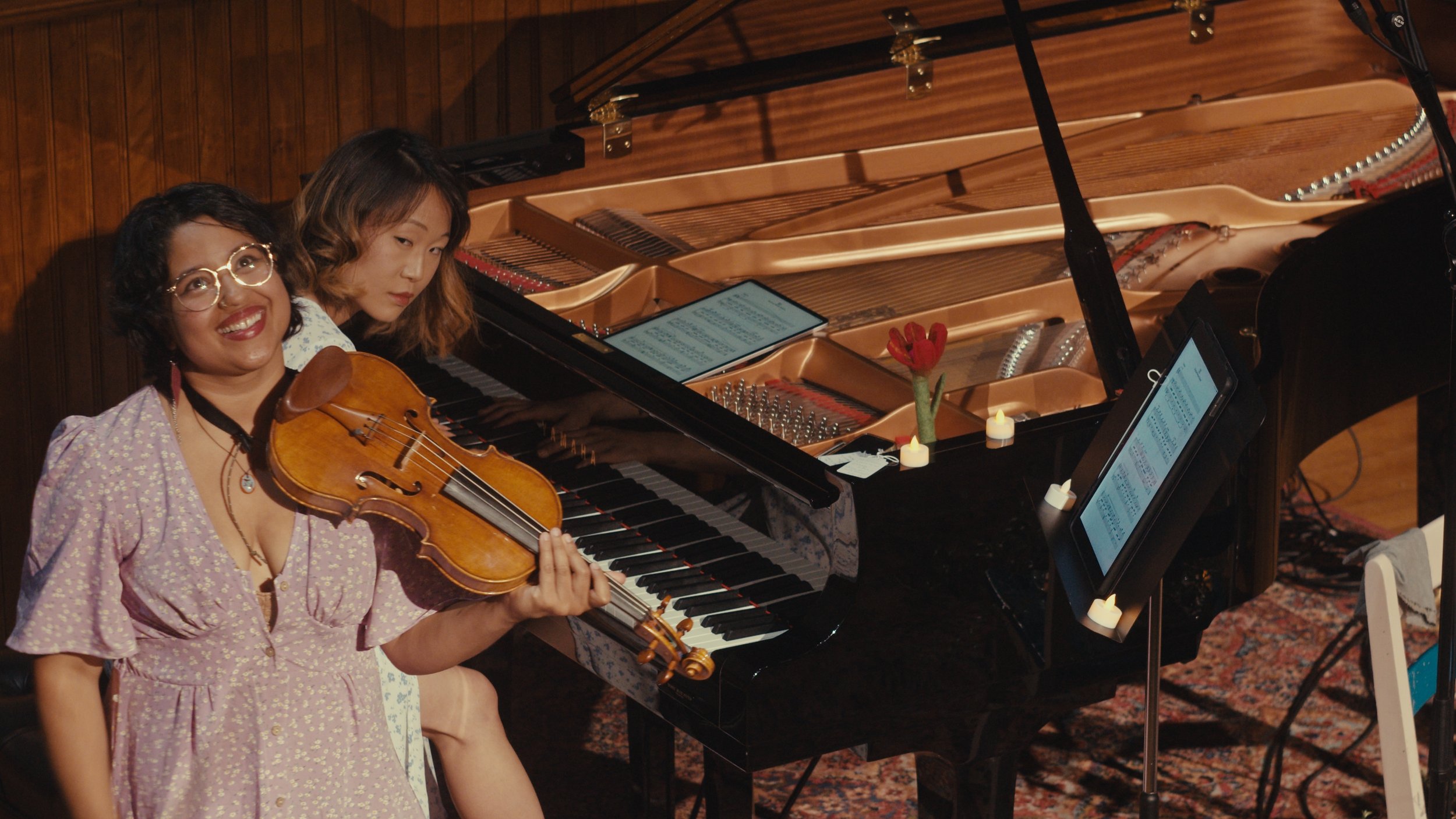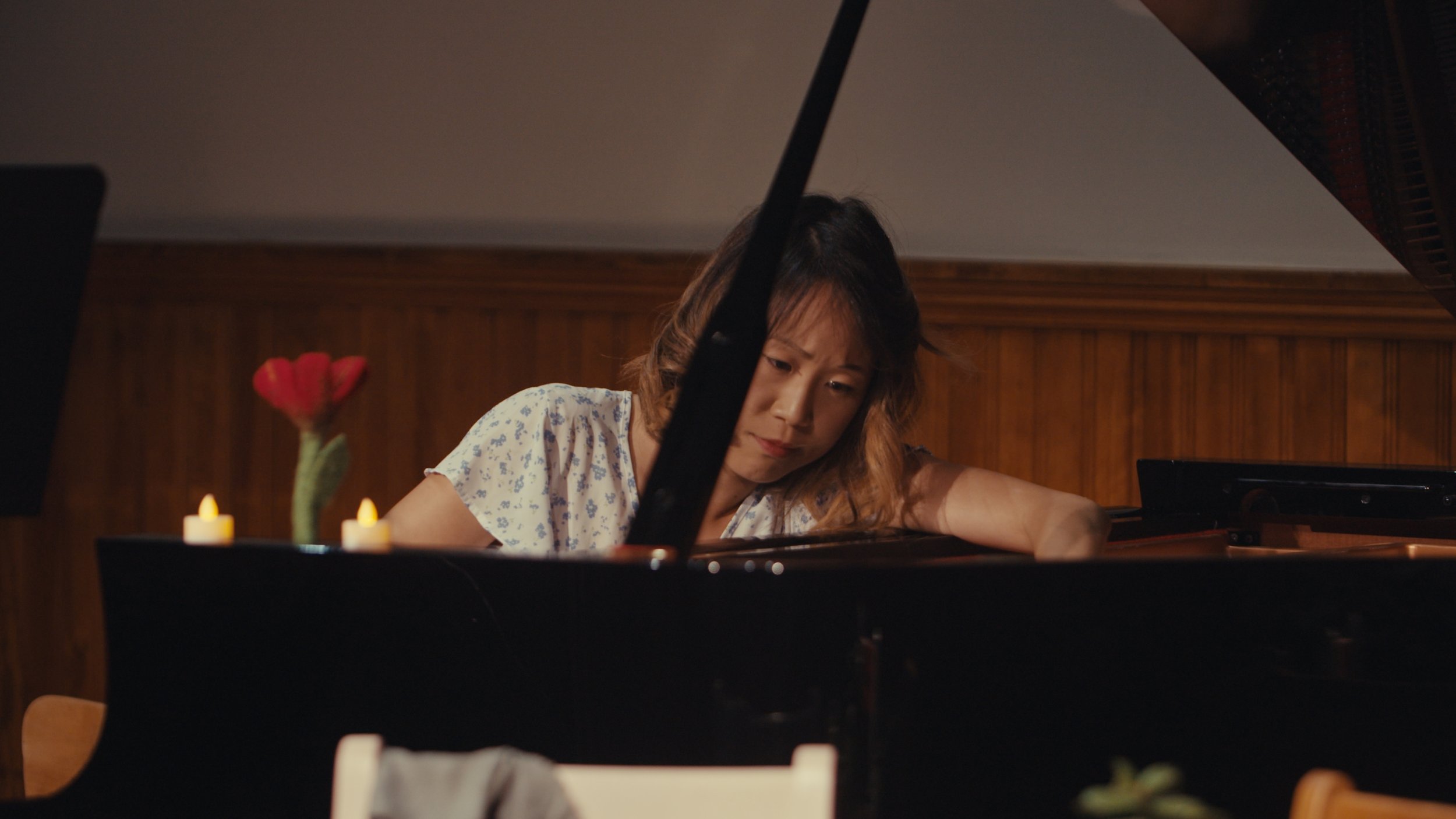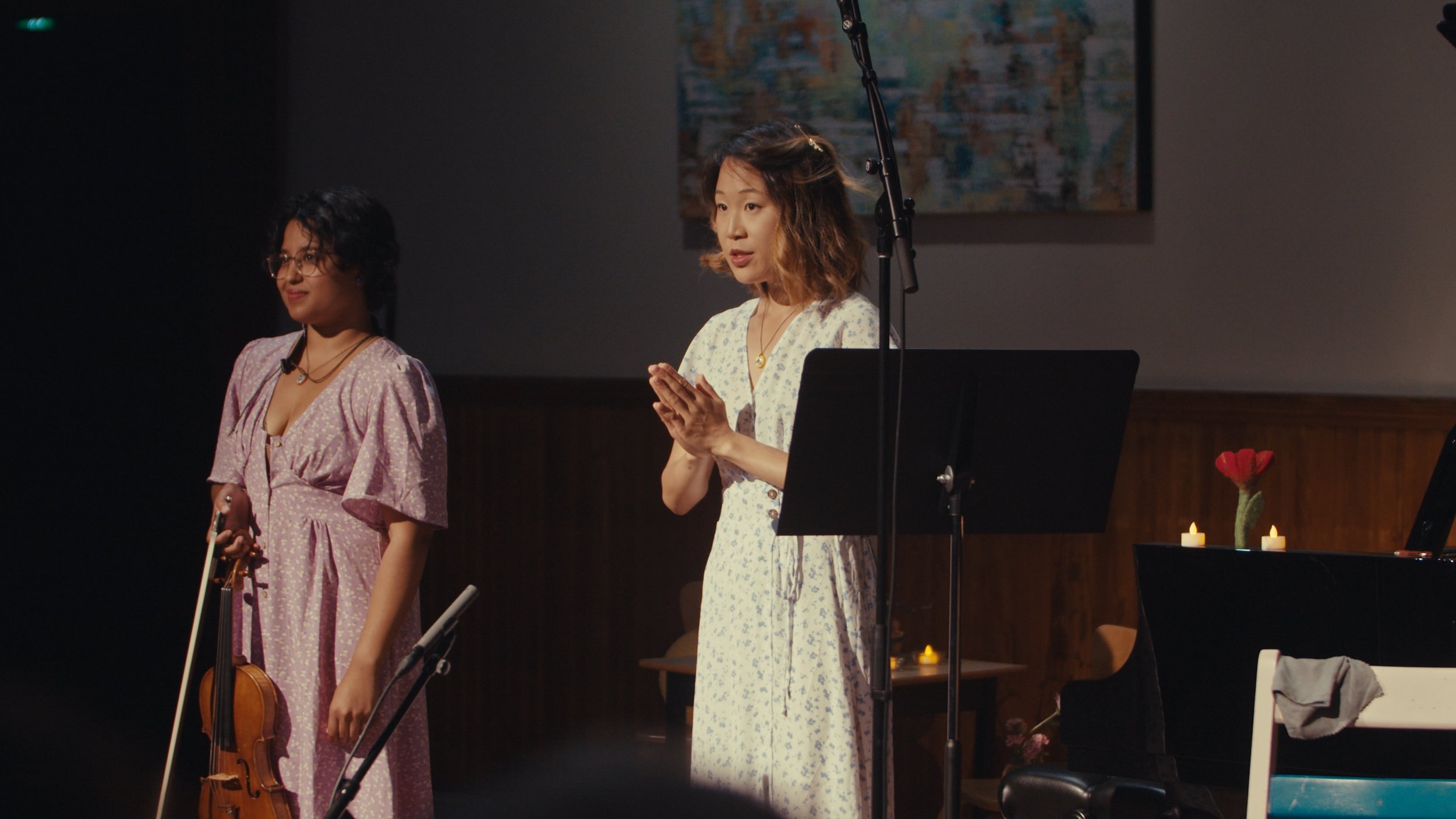DP at LAMP: "wanting to start again"
Recipe cards. Tree. Music.
Mementos, proof of the magic that we were a part of. That Wednesday night. The stories and energies exchanged there that reaches back so much longer, deeper than we can recall.
We both cried. Crying a lot doesn’t take away from the intensity of crying again, each time we are blessed and burdened by feeling this world, this music. I was fine for most of the time leading up to the concert, but that morning, while listening to the melodies of Wong’s “A Dream of the Motherland”, this wave of tenderness, of bitter painful emotion mixed with fire and ice and injustice and futile loving hopefulness - it all hit me. I knew what I wanted to say. Just another simple story, as always, the same simple story, that still needs to be told, vocalized, remembered, honoured, however briefly.
It’s a little strange that everything has happened.
It’s a little terrifying to remember.
We gave a lot of our hearts. Vulnerable, courageous hearts.
Here are some of the words, thoughts, sentiments that did and did not make it into the script. And a conversation with our dear poet friend who shared our journey of bringing this program into fruition.
As always,
Humbly yours,
TW
p.s. more intimations here.
Concert Script (extended)
Part I.
MM:
Growing up, my mom taught me to say a prayer before embarking on any journey, for guidance, for blessing. I offer this one to you at the start of ours today.
jananī pṛthivī kāmadughā(ā)ste
janako devaḥ sakaladayāluḥ |
dāmyata datta dayadhvaṃ janatāḥ
śreyo bhūyāt sakalajanānām ||
Cultivate friendship, which will conquer all hearts,
Look upon others as thyself.
Renounce war.
Forswear competition.
Give up aggression on others,
Earth our Mother is here, ready to give us all our desires
We have the Lord our Father, compassionate to all.
Ye people of this world!
Restraint yourself, be kind.
May all people be happy and prosperous
Let good happen to all,
Let good happen to all,
Let good happen to all.
Kala Ramnath - Aalap and Tarana
MM:
I landed in Halifax two Saturdays ago. The fires started on Sunday. Tong flew in on Monday from Airdrie, leaving Banff fires for Tantallon ones. What could we do. How could we help.
In desperation, we started learning about the local trees, the climate, everything we could. We walked. Talked to people who knew more than we did. Listened to the land. The problems were bigger than us. We didn’t know enough. Could we even make a difference. We were feeling more and more stuck with our program.
Then the universe sent us an ingredient in the form of Veryan. Marion had introduced us to him at an urban forestry planning meeting in Mahone Bay, and he sent us some of his poems. We read “I cannot find a tone,” and recognized our own selves through his words. The program began to take shape. It became clear.
We invite Veryan to read this poem to you now.
Reading: “I cannot find a tone” by Veryan Haysom
Fu-Tong Wong - Suite: A Dream of the Motherland
III. Remembrance
TW:
After hearing Veryan’s poem, we realized that our role as artists, musicians, poets is to facilitate a deeper connection with these difficult questions - these shared experiences: of being stuck, where you can't find the tone, the words, the actions.
You don’t know what’s happening.
How to move on.
Why bother moving on.
And THAT’s how the theme came to be: “Wanting to start again”.
It’s not about coming up with solutions - we leave that to the experts and policy makers.
We invite you throughout the concert to think about moments you’ve felt stuck:
How do you start again?
***
The next piece, “Legend of Ashitaka” follows one of our favorite films, Princess Mononoke: an epic struggle between humanity and nature.
(While protecting his village, the young prince Ashitaka is infected by a deadly curse by a boar-god. He journeys to the west to seek a cure from the Forest God and finds Lady Aboshi and her mining town waging war on the forest, cutting down trees and killing the animal gods. The forest animals fight back, led by a human raised by a wolf-god, Princess Mononoke, but hatred only breeds more hatred, and the war begins to destroy the whole forest, possessing both sides with anger and vengeance.
At the climax of the film, the earth is scorched, both the town and the forest are burning to ashes. Only at the last moment does Ashitaka and San (Princess Mononoke) - representing man and forest, make one final attempt together to return the head of the forest god to itself, offering peace and atonement.
For a moment, there’s nothing. No life. No sound.
But then, we hear the theme of “Ashitaka and San”.
We see the grass gradually beginning to turn green again.
This is the moment in the music that always melts our hearts, this is the sound of “starting again”. )
There are many episodes of anger, hatred, vengeance, but also moments of love, light, and hope - particularly cute is the theme of the Kodamas “forest of spirits” where you’ll hear glittering high notes in the piano and pizzicato in the violin.
The Legend of Ashitaka is a story of survival, conflict, and destruction, but ultimately, of coexistence and reconciliation, and it begins like this:
In ancient times, the land
lay covered in forests,
where, from ages long past,
dwelt the spirits of the gods.Back then, man and beast
lived in harmony,
but as time went by, most
of the great forests were destroyed.
Those that remained were guarded
by gigantic beasts...
who owed their allegiance
to the Great Forest Spirit,
for those were the days
of gods and demons.
Joe Hisaishi/Wesley Chu - “Legend of Ashitaka” from Princess Mononoke
“The Demon God” - “The Journey to the West” - “The Demon Power” - “Kodamas/The Forest of the Gods” - “The Tatara Women Work Song” - “Requiem” - “Adagio of Life and Death” - “Princess Mononoke” - “Ashitaka and San”
Part II.
TW:
Now, it’s time to take out your pen and cards.
During the next piece, Fazil Say’s “Mount Ida”, think about what rituals help you when you’re stuck. These are your “Wanting to start” recipe cards. They could be literal recipes (grandma’s apple pie) or a combination of activities (taking a walk).
After the piece, hold your applause and we’ll take a moment of silence to write down 3 recipes. The silence might feel long, but that’s okay. It’s okay to be stuck.
Allow the silence to be.
MM:
I want to tell you about my Grandma. I called her Lallu. She was one of my best friends.
She taught me a lot without having to say that she was teaching me something.
She loved life, more so than anyone I’ve ever met. In the big moments and the small ones.
Her life wasn’t easy, but she didn’t show it.
I remember when my dad flew to India because she left a suicide note and no one could find her.
I remember hearing that she was ok, that they found her on a beach, looking out at the water.
I remember her visit to the states after that. I didn’t know what to say, how to talk about it. I remember her saying “I wasn’t ok, but now I’m ok.”
“How do you know that you’re ok now? How do you know you won’t be not ok again?”
“I don’t. But you’re here, I’m in good hands. Let’s go on a walk.”
Our favourite activity was going on walks. It’s how I honour her even now.
Noticing everything on walks. She would point things out, even if it was a tree we saw a hundred times.
I wonder if she knows how much that shaped me. How that taught me to love, to see paths crossing as a miracle, even if it happens again and again.
A miracle multiplied is still a miracle.
The trees became my friends. To this day, no matter where I go, I always say hello to the trees.
But there’s one thing Lallu never had time to teach me.
When a friend is going through a bad time, you can console them. With words, with actions.
When a friend loses their home in a fire, loses loved ones, there is still a way to console.
How do you console a tree?
Fazil Say - Sonata No.2 “Mount Ida”
I. Destruction of Nature
II. Wounded Birds
III. Rite of Hope
Activity: “Wanting to Start Again” Recipe Cards
Dinuk Wijeratne - Violin Sonata
III. Resilience
MM:
You each wrote three recipe cards. We would like to invite you to trade one of those cards with someone else now. Give a recipe, receive a recipe.
At the end of this concert, we would like for you to leave one of your cards on the tree.
In this way,
We take care of ourselves.
We take care of each other.
We take care of our space.
Activity: Trading Cards
TW:
(This question, “how do we start again?” is one we’ll find ourselves returning to. And that’s okay. Each time the answer can be different. It’s okay to not be okay. To not know. It’s okay if the answers change. If our truths change. One answer that I keep coming back to though, that grounds me. Is rhythm.)
June 8, 2023
8:07AM Lunenburg NSWhat allows. Moves us to start, again?
Rhythm.
There’s a rhythm to everything.The land, its one drum. One heartbeat. Rhythm to our inner physical psychological spiritual clocks. Rhythm to breath, to life and death. Rhythm to our dance and song. Rhythm in time.
Rhythm in trust.
Trust in rhythm.And so, there was, there is, there shall be
music. Clapping. Stomping.
Resonate with that rhythm. Chant to that rhythm.Then
you’ve already started.
Listen and notice that you’ve BEEN starting. You’re a constant, always, changing start. It’s okay. It’s okay to be not okay.Trust the rhythm of each moment.
***
Finally, I’d like to dedicate this last piece, as always, to my mother.
I keep coming back to this, but there’s nothing quite like the story of an immigrant parent that says “wanting to start again”.
There’s no one who has shown me as many times as she has, what it takes to keep going.
She can’t be here to share our joy, but I know she’s staying strong for me, where she is now, where things still aren’t easy. She carries on.
And this is her voice:
(recording)
中国是个诗歌的国度,《诗经》《楚辞》培育了我们的民族精神;中国,又是个音乐的国度,《高山》《流水》涵养了我们的民族气质。诗歌和音乐,就是一双飞跃的翅膀,托起中国人向着高尚的文明境界迎风翱翔。我们文明古国的大旗上,写满了雄健的诗句,写满了优美的音乐。
China is a country of poetry, "The Book of Songs" has cultivated our spirit; China is a country of music, "High Mountain" and "Flowing Water" have cultivated our temperament. Poetry and music are like a pair of flying wings, supporting us to soar toward the noble realm. The banner of our ancient civilization is full of vigorous poems and beautiful music.
Fu-Tong Wong - Suite: A Dream of the Motherland
I. South of the Yangtse River
II. Sheng Dance
III. Remembrance
IV. Song of the Wagon-driver
V. Hand-Drum Dance
Activity: A Gift to Our Tree
Fin.
